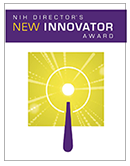2023 Awardees
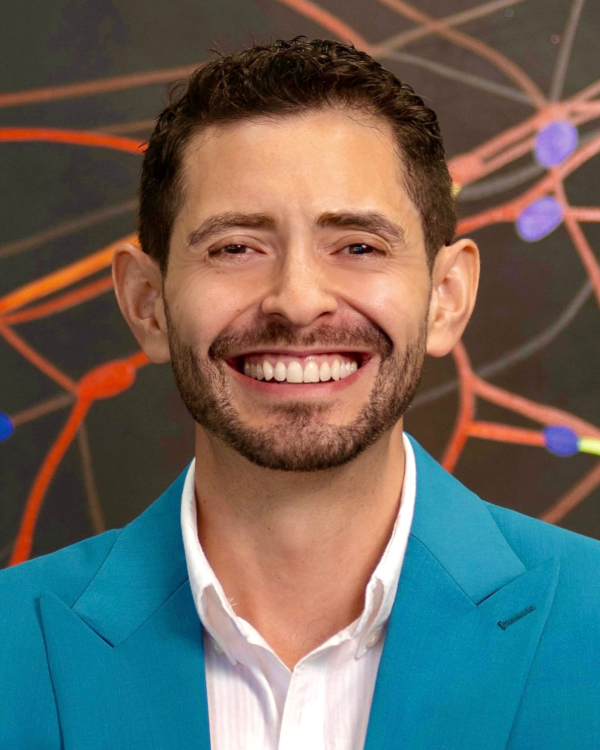
Brian A. Aguado, Ph.D.
University of California, San Diego; Sanford Consortium for Regenerative Medicine
Project Title: Probing Sex Differences in Myocardial Fibrosis at Multiple Length Scales Using Biomaterials
Grant ID: DP2-HL173948
Dr. Brian Aguado is an Assistant Professor of Bioengineering at the University of California, San Diego and the Sanford Consortium for Regenerative Medicine, where his research is focused on studying sex differences in cardiovascular disease using biomaterial technologies. Dr. Aguado completed his B.S. degree in Biomechanical Engineering from Stanford University, his M.S. and Ph.D. in Biomedical Engineering from Northwestern University, and his postdoctoral fellowship in Chemical and Biological Engineering at the University of Colorado Boulder. Dr. Aguado has most recently received the NHLBI K99/R00 Pathway to Independence Award, the American Heart Association Career Development Award, and the Chan Zuckerberg Initiative Science Diversity Leadership Award to support his sex differences research. Dr. Aguado also co-founded LatinXinBME, a new social media initiative dedicated to building a diverse and inclusive community of Latinx biomedical engineers and scientists to mentor each other personally and professionally through their careers. For his efforts, Dr. Aguado was named one of the 100 Most Inspiring Latinx Scientists in America by Cell Press and received the Biomaterials Young Investigator Diversity Award from the Biomaterials journal.
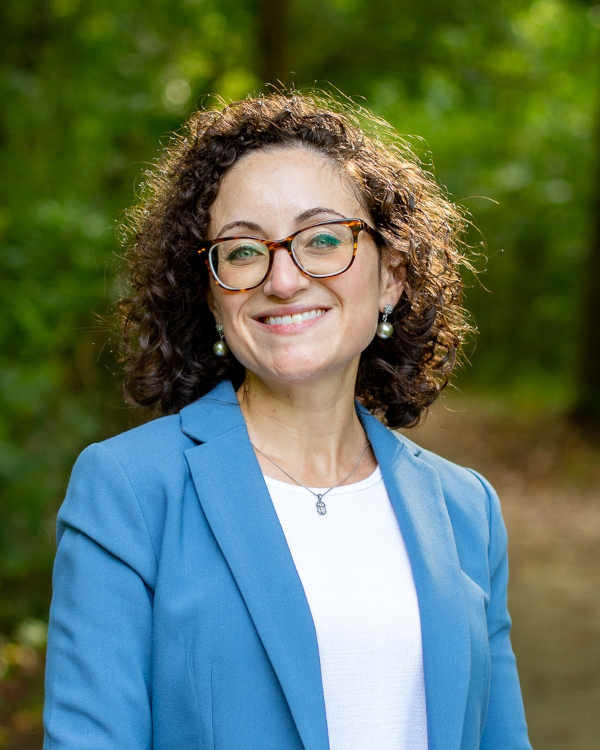
Danielle (Dani) Arigo, Ph.D.
Rowan University
Project Title: A Paradigm Shift in Health Behavior Change: Understanding When and How Social Comparison Supports Healthy Behavior
Grant ID: DP2-HL173857
Danielle Arigo, Ph.D., is an Associate Professor in the Department of Psychology at Rowan University, the Department of Biomedical Sciences at Cooper Medical School of Rowan University, and the Department of Family Medicine at Rowan-Virtua School of Osteopathic Medicine. She received her Ph.D. in Clinical Psychology from Syracuse University and completed her predoctoral clinical internship at the Syracuse Veterans Affairs Medical Center and its Center for Integrated Healthcare (CIH); she completed her postdoctoral fellowship at the Drexel University Center for Weight, Eating, and Lifestyle Science (WELL Center) and she remains an affiliated investigator with both the CIH and the WELL Center. Dr. Arigo was also an Assistant Professor of Psychology at the University of Scranton and a Scholar with the Program to Increase Diversity Among Individuals Engaged in Cardiovascular Health-Related Research (PRIDE-CVD), sponsored by the National Heart, Lung, and Blood Institute. Dr. Arigo directs the Rowan Clinical Health and Social Experiences (CHASE) Lab, where her research investigates the effects of psychological and social perceptions on cardioprotective behaviors (e.g., physical activity), with emphasis on optimal methods to measure and harness these processes in behavioral and digital interventions, especially among women. Her work has been supported by a K23 Mentored Patient- Oriented Research Career Development Award and an R03 award from the National Heart, Lung, and Blood Institute, as well as a competitive R03 administrative supplement from the Office of Research on Women’s Health.
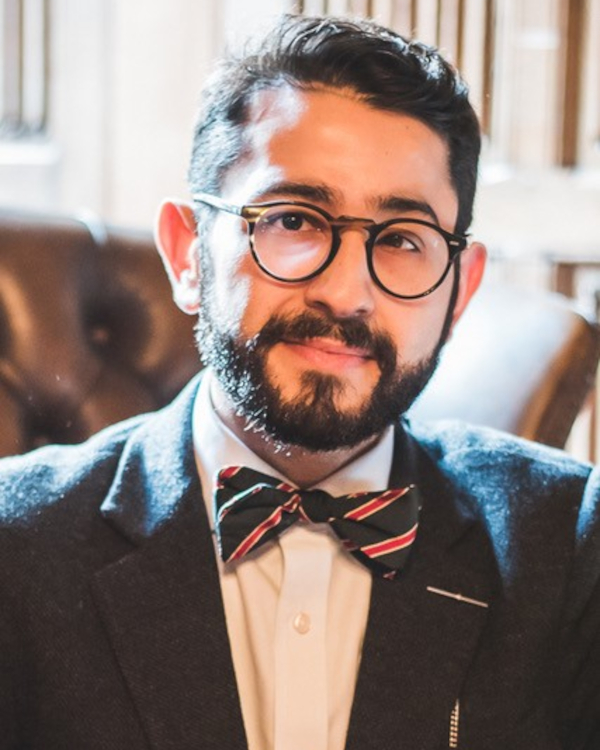
Mustafa G. Aydogan, Ph.D.
University of California, San Francisco
Project Title: Decoding the Fundamental Principles of Autonomous Clocks: Mechanism, Design and Function
Grant ID: DP2-GM154328
Mustafa Aydogan is a Sandler Fellow in the Department of Biochemistry and Biophysics and a Member Investigator in the Nutrition and Obesity Research Center at the University of California, San Francisco. He did his Ph.D. with Prof. Jordan Raff at the University of Oxford, during which he uncovered a molecular clock that can run autonomously of the principal CDK/Cyclin cell cycle oscillator to operate the centriole biogenesis cycle. Along with simultaneous studies from others, this has sparked what is now a growing community working on the concept of autonomous clocks: timing mechanisms and cycles that are normally coupled to run in synchrony with the cell cycle, but can also function independently to execute a variety of cellular events in physiology. The Aydogan lab focuses on unravelling such hidden molecular rhythms of cellular time control, with a particular interest in embryonic metabolism and development. In addition to the NIH New Innovator Award, he is a recipient of Sandler Foundation Fellowship and Cold Spring Harbor Asia Fellowship Awards, and is a runner-up awardee of the 2018 Young Cell Biologist of the Year at the British Society for Cell Biology.
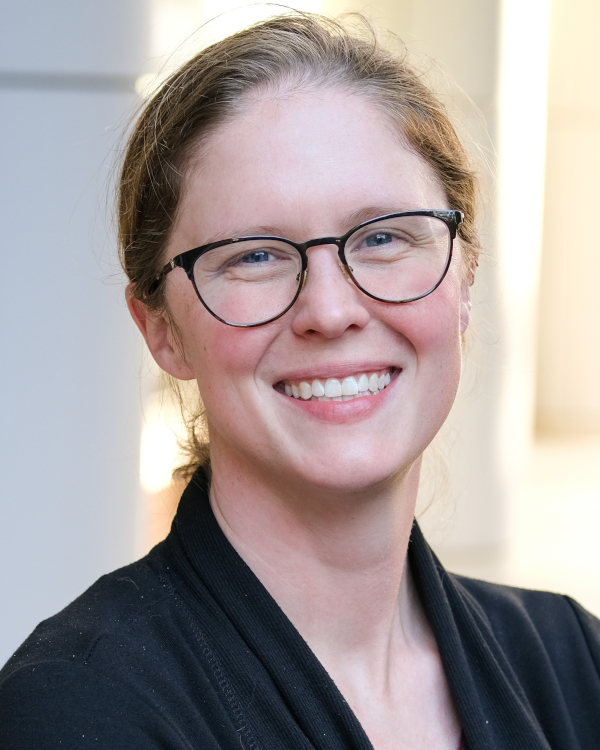
Katherine T. Baldwin, Ph.D.
University of North Carolina at Chapel Hill
Project Title: The Facts of the Matter: Decoding the Molecular Properties of Brain White Matter Using Cell-Type-Specific Quantitative Proteomics
Grant ID: DP2-NS136873
Katherine (Katie) Baldwin is an Assistant Professor in the Department of Cell Biology and Physiology and the Neuroscience Center at the University of North Carolina at Chapel Hill. Dr. Baldwin received her Ph.D. in Cellular and Molecular Biology from the University of Michigan, working with Dr. Roman Giger to uncover molecular mechanisms of immune-mediated axon regeneration in the mammalian central nervous system. She completed her postdoctoral training with Dr. Cagla Eroglu at Duke University, studying the function of disease-linked cell adhesion molecules in astrocyte morphogenesis and astrocyte-astrocyte interaction. At UNC, Baldwin’s lab uses mouse genetics, primary cell culture, spatial proteomics, viral tools, and super resolution microscopy to investigate the cellular and molecular basis of glial cell connectivity. Her lab is particularly interested in how astrocytes establish and balance their numerous interactions with other brain cells, and the importance of these interactions for proper brain development.
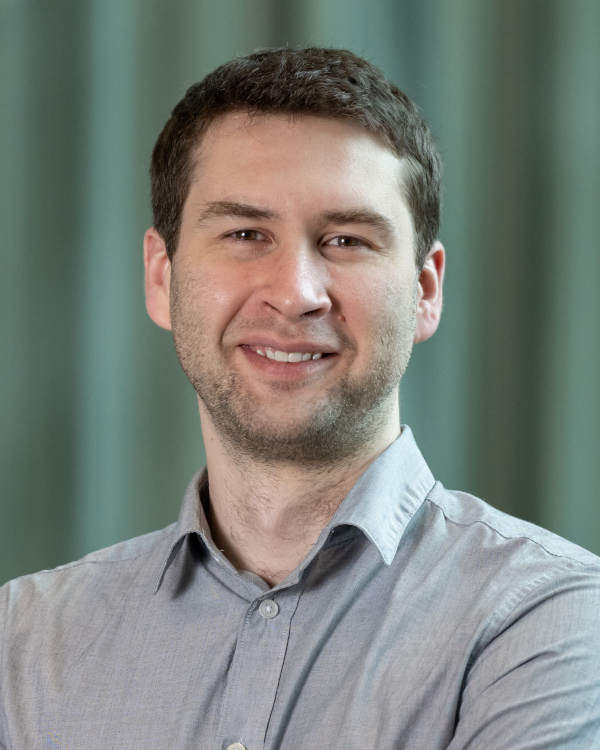
Steven M. Banik, Ph.D.
Stanford University
Project Title: Mapping and Therapeutic Hijacking of Lysosomal Transport
Grant ID: DP2-GM154016
Funded by the National Institute of General Medical Sciences
Steven Banik is an Assistant Professor in the Chemistry Department and a Sarafan ChEM-H Institute Scholar at Stanford University. The Banik Lab's research focuses on rewiring mammalian biology and chemical biotechnology development. This research combines chemical biology, organic chemistry, protein engineering, cell and molecular biology to precisely manipulate the biological machines present in mammalian cells. He received his Ph.D. from Harvard University where he worked with Prof. Eric Jacobsen on synthetic methods in asymmetric catalysis. Prior to joining the faculty at Stanford, Steven was a NIH and Burroughs CASI postdoctoral fellow advised by Prof. Carolyn Bertozzi at Stanford.
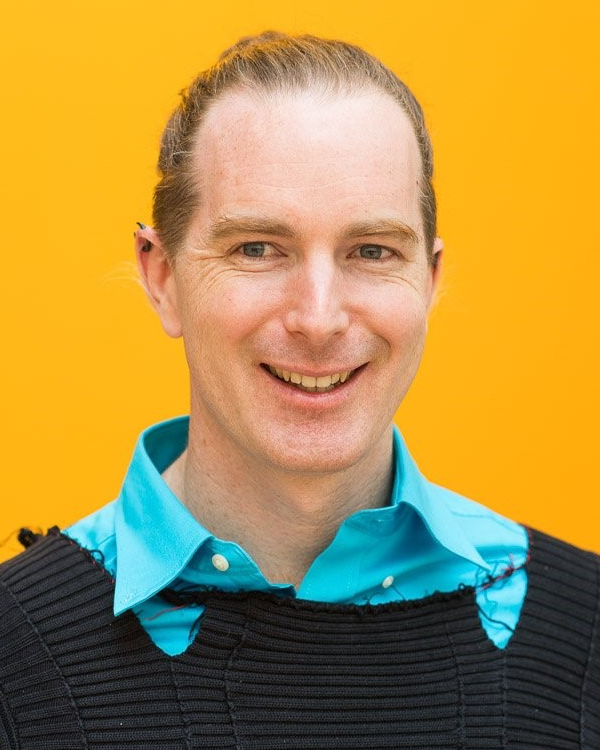
Benjamin B Bartelle, Ph.D.
Arizona State University
Project Title: Bioengineering Tools to Resolve and Manipulate Neuroimmune Signaling
Grant ID: DP2-MH136493
Funded by the National Institute of Mental Health
Dr. Bartelle builds synthetic neurobiological assays, reporter genes, and sensors for functional molecular studies in the living brain. As an independent investigator, Benjamin has focused these methods on resolving and manipulating neuroimmune biology, developing novel molecular tools to study and treat neuroinflammatory and degenerative diseases.

Rohit Bose, M.D., Ph.D.
University of California, San Francisco
Project Title: Simulating Ancestrally Unbiased Tumor Evolution to Interrogate Drug Resistance
Grant ID: DP2-CA290244
Rohit Bose is an Assistant Professor and practicing medical oncologist at the UCSF Helen Diller Family Comprehensive Cancer Center, and is appointed within the Departments of Anatomy, Medicine (Division of Hematology/Oncology), and Urology. He sees prostate cancer patients with a focus on understanding how molecular diversity both within their cancer cells and their host environment affects disease evolution. His lab’s research program focuses on altering tumor evolution and identifying cells that will demonstrate therapy resistance. This is achieved through fundamental, translational, and clinical scientific approaches employed by lab members with diverse expertise. He has received generous support from the American Cancer Society, US Department of Defense, Prostate Cancer Foundation, Benioff Initiative for Prostate Cancer Research, Bakar Aging Research Institute, UCSF patients and is the recipient of an NIH/NCI K08 Mentored Clinical Scientist Research Career Development Award.
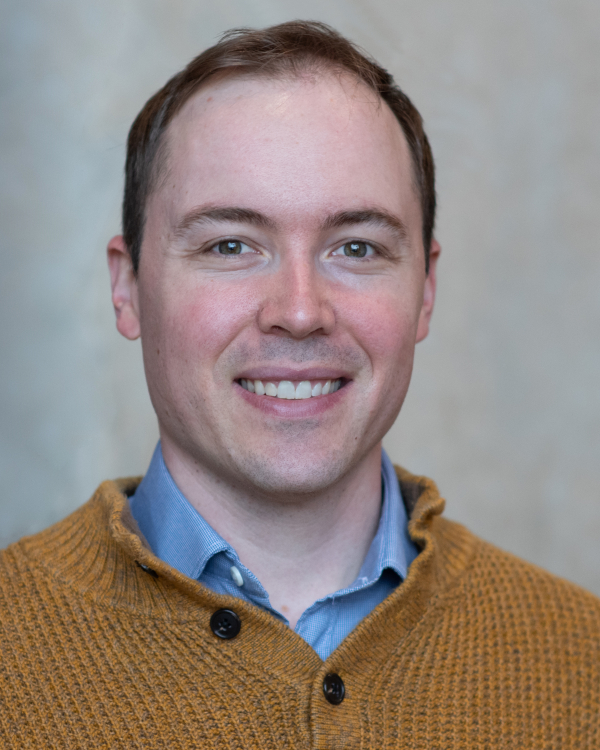
Nick Burton, Ph.D.
Van Andel Institute
Project Title: Identifying Microbial Mechanisms that Regulate Animal Insulin Signaling
Grant ID: DP2-DK139569
Dr. Nick Burton received a B.S. in Biology from the University of Wisconsin-Madison and a Ph.D. in Biology from MIT. Following his graduate studies, he was awarded an independent Next Generation Fellowship from the Centre for Trophoblast Research at the University of Cambridge in the United Kingdom. During this independent research fellowship, Dr. Burton developed two distinct research projects: investigating the molecular mechanisms by which different bacterial species in the intestinal microbiome modify animal insulin signaling and determining how maternal insulin signaling can influence offspring health and physiology. Dr. Burton is now an Assistant Professor at the Van Andel Institute where he will continue to use the model animal C. elegans to understand the molecular mechanisms by which bacteria influence animal physiology and by which a mother’s environment can influence offspring physiology.
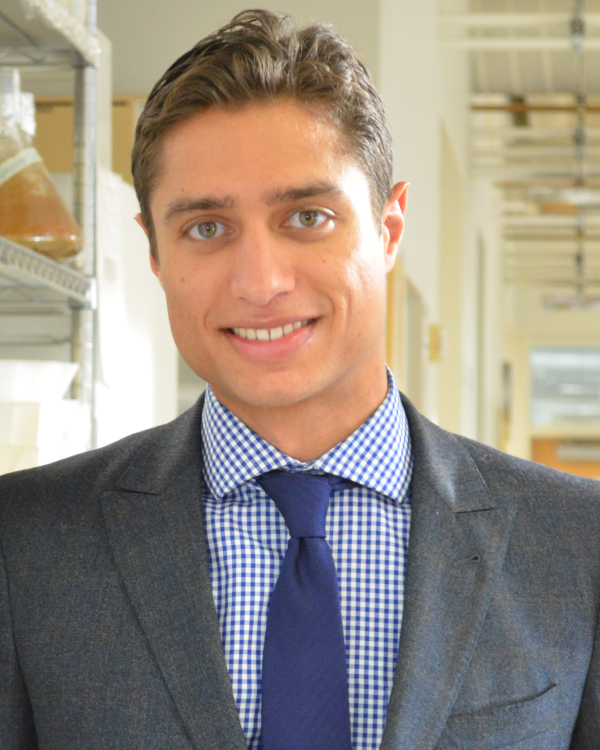
Calvin Carter, Ph.D.
University of Iowa Carver College of Medicine
Project Title: Targeting Evolutionarily Encoded Molecular Antennae to Wirelessly Reprogram Systemic Metabolism
Grant ID: DP2-DK139545
Calvin Carter is an Assistant Professor of Biomedical Engineering and Neuroscience & Pharmacology at the University of Iowa Carver College of Medicine. He earned his Ph.D. in Neuroscience as an NSF Graduate Research Fellow and subsequently worked with Drs. E. Dale Abel and Val Sheffield as an American Diabetes Association Postdoctoral Fellow. During this time, Dr. Carter discovered the existence of biological mechanisms that enable mammals to transmit electromagnetic signals into metabolic responses. Now, he works to better understand these mechanisms as well as the health effects of exposure to the electromagnetic fields that are pervasive in modern society. His goal is to develop a comprehensive map of the biological effects of electromagnetic fields and to develop precision medicines that use wireless signals, instead of drugs to reprogram metabolism in disease settings.
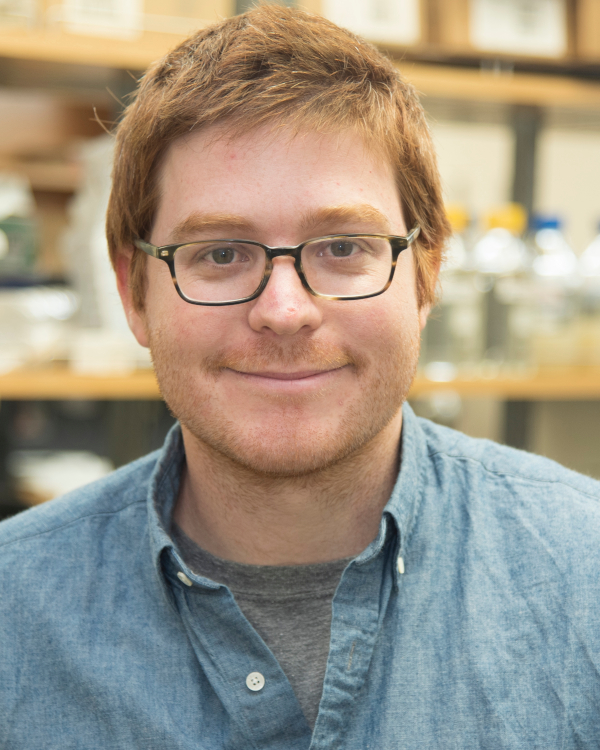
Scott M. Coyle, Ph.D.
University of Wisconsin-Madison
Project Title: Cellular FM-Radios: Seeing, Probing, and Perturbing Single-Cell Protein Activity Dynamics in Biological Systems with Frequency-Barcoded Spatiotemporal Signaling Circuits
Grant ID: DP2-GM154329
Scott Coyle did his undergraduate training at the University of California, Berkeley. He completed his PhD in Biochemistry as an NSF Graduate Research Fellow with Wendell Lim at the University of California San Francisco, where his research at the intersection of biochemistry, signaling, and evolution was recognized with a Harold M. Weintraub Graduate Student Award. He was a founding scientist at the successful immune-cell engineering startup CellDesignLabs, before doing post-doctoral work as a Helen Hay Whitney Fellow with Manu Prakash at Stanford University. His own group uses synthetic biology to develop biochemical programming interfaces that expand our ability to understand and engineer dynamic cell biology, with a major focus on novel synthetic circuits that self-organize molecules in space and time. He is also the recipient of a Packard Fellowship in Science and Engineering and a Kavli Frontiers of Science Fellow.
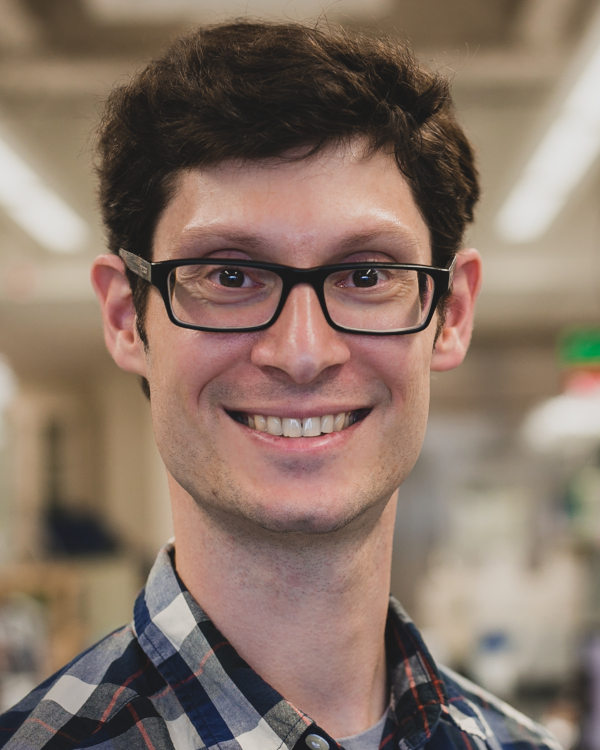
Nathan Crook, Ph.D.
North Carolina State University
Project Title: Brewing Anti-Toxin Drugs Using Probiotic Yeast
Grant ID: DP2-AT012795
Nathan Crook completed his bachelors degree in chemical engineering at Caltech and performed undergraduate research in directed evolution in the laboratory of Frances Arnold. During his PhD studies in the laboratory of Hal Alper at the University of Texas at Austin, Nathan learned techniques in yeast genetics and metabolic engineering. Then, Dr. Crook performed postdoctoral work in the laboratory of New Innovator Awardee Gautam Dantas at Washington University in Saint Louis, where he learned how to develop and test engineered probiotic therapies. At North Carolina State University, Dr. Crook integrates these experiences to guide students and postdocs to develop their own skills in metabolic engineering, microbial ecology, and host-microbe interactions. Crook Lab members develop novel genetic engineering techniques and apply these techniques to develop engineered microbes that address pressing issues in human health, agriculture, and sustainability.
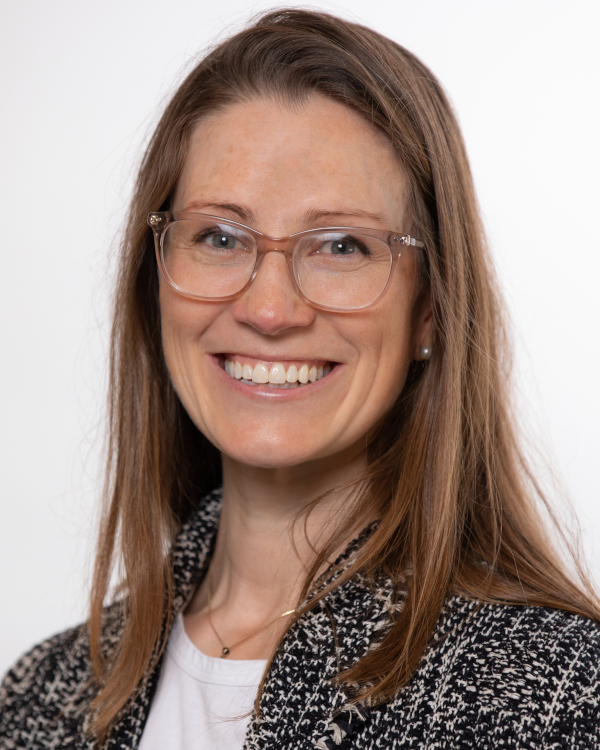
Elizabeth E. Crouch, M.D.,Ph.D.
University of California, San Francisco
Project Title: Vascular Mural Cells in the Development of the Blood Brain Barrier
Grant ID: DP2-MH136391
Funded by the National Institute of Mental Health
Elizabeth Crouch is an Assistant Professor at the University of California, San Francisco in the Department of Pediatrics affiliated with both the Broad Stem Cell Institute and the Cardiovascular Research Institute. Dr. Crouch obtained her MD/PhD degrees at Columbia University College of Physicians and Surgeons followed by training in Pediatrics and Neonatology at University of California, San Francisco. Her group’s research in the Neurovascular Development lab (crouchlab.ucsf.edu) resolves around defining the stages of vascular stem cells in the developing Central Nervous System and understanding the mechanisms that regulate their functions. Her lab then applies this knowledge to produce novel technologies and therapeutic strategies for different brain hemorrhages in neonatal and pediatric patients. Her work is also funded by the American Heart Association, the California Institute for Regenerative Medicine, and the Burroughs Wellcome Fund.
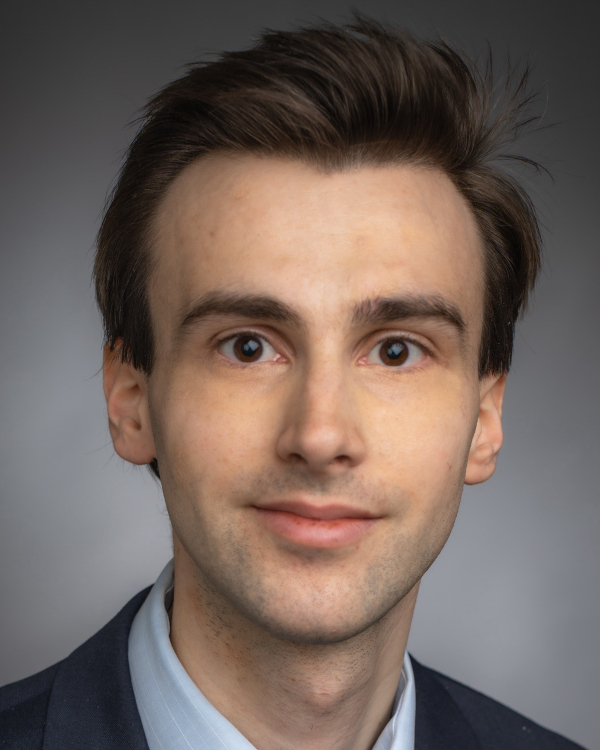
Felix Dietlein, M.D., Ph.D.
Boston Children’s Hospital; Dana-Farber Cancer Institute; Broad Institute; Harvard Medical School
Project Title: Defining the Universal Genomic Language of Hallmarks in Tumor Development
Grant ID: DP2-CA290196
Felix Dietlein is an Assistant Professor at Harvard Medical School, Core Faculty in the Computational Health Informatics Program at Boston Children’s Hospital, Associate Member of the Broad Institute, and Investigator at the Dana-Farber Cancer Institute. He completed medical school and doctoral degrees in mathematics and molecular medicine at the University of Cologne, Germany, and then pursued postdoctoral training in computational cancer genomics at the Dana-Farber Cancer Institute and Harvard Medical School. His research combines concepts from data science, statistics, machine learning, and genomics into innovative biologically informed tools in precision medicine that discover targets for new personalized therapies. To maximize the translational potential of his work, his laboratory employs diverse strategies to de-silo cancer genomics through close collaborations with basic experimental scientists and clinicians. In addition to the New Innovator Award, he is a recipient of an ASCI Young Physician-Scientist Award, Barr Award for Innovative Cancer Research, ASPIRE Award of the Mark Foundation, and NIH Pathway to Independence Award.
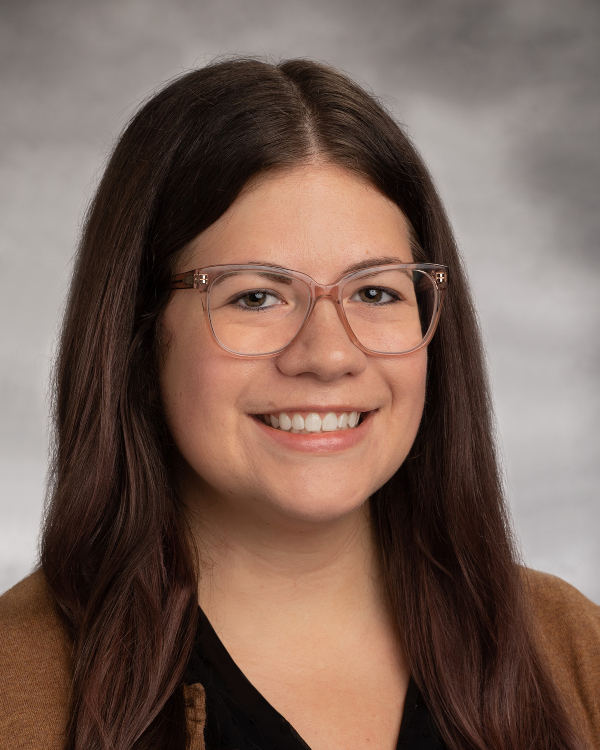
Elizabeth (Lizzy) Draganova, Ph.D.
Emory University School of Medicine
Project Title: Under Pressure: Biophysical Mapping of Herpesvirus Capsid Assembly and Genome Packaging
Grant ID: DP2-GM154151
Lizzy Draganova is an Assistant Professor in the Department of Biochemistry at the Emory University School of Medicine. Native to Georgia, Lizzy received her B.S. in Biochemistry from Kennesaw State University and her Ph.D. in Chemistry from Georgia State University. She completed her postdoctoral training in the laboratory of Dr. Katya Heldwein in the Department of Microbiology and Molecular Biology at Tufts University School of Medicine as an NIH IRACDA fellow where she used structural virology and biophysics to understand aspects of herpesvirus replication. She is also the recipient of the NIH Pathway to Independence (K99/R00) transition award from NIAID. Her lab is focused on creating novel biophysical methodologies to understand herpesvirus capsid assembly, packaging and nuclear egress.
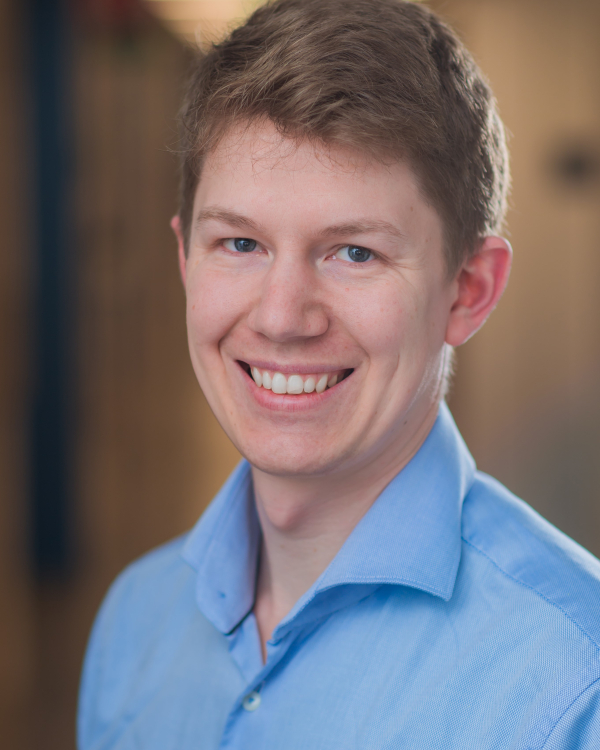
Lucas Farnung, Ph.D.
Harvard Medical School
Project Title: Visualizing Mechanisms at the Intersection of Chromatin, Transcription, and Epigenetics
Grant ID: DP2-ES036404
Lucas Farnung is an Assistant Professor of Cell Biology at Harvard Medical School. Originally from Germany, he received his BSc from University College London (UK) and a Dr. rer. nat. in Biochemistry from Ludwig Maximilian University of Munich (Germany) in collaboration with the Max Planck Institute for Biophysical Chemistry (Germany) where he structurally characterized chromatin remodelers in the lab of Dr. Patrick Cramer. As a post-doctoral researcher and project leader, Dr. Farnung pioneered methods for visualizing transcription through chromatin using cryo-electron microscopy. His current research centers on exploring molecular processes at the intersection of chromatin, transcription, and epigenetics. Dr. Farnung's research has been recognized by the Karl-Lohmann-Prize and The Smith Family Awards Program for Excellence in Research, and he has been named a Damon Runyon Rachleff Innovator, and the 2023 Milton E. Cassel Scholar as part of the Rita Allen Foundation Scholar program.
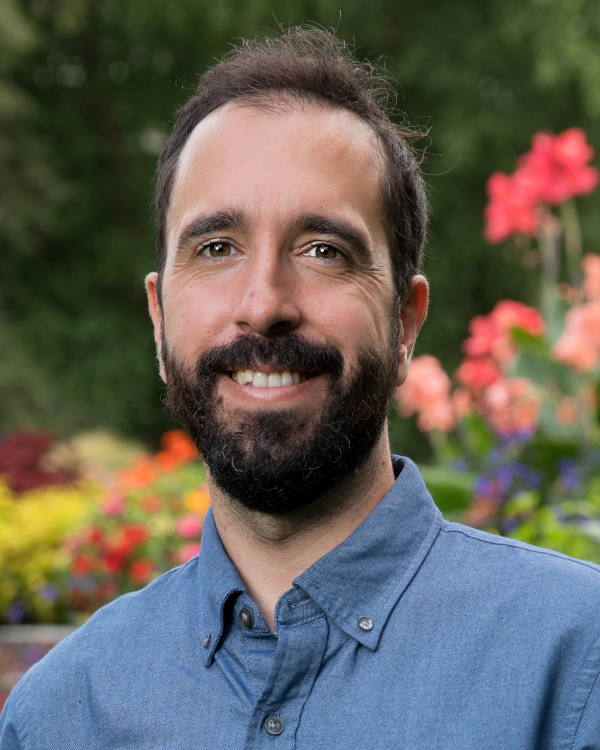
Antonio Fernandez-Ruiz, Ph.D
Cornell University
Project Title: How Do Animals Learn the Structure of Their Natural Environment?
Grant ID: DP2-MH136496
Funded by the National Institute of Mental Health
Antonio Fernandez-Ruiz studied Biology and Physics at Universities of Sevilla and Madrid (Spain), where he also completed his PhD. During his postdoc in the laboratory of Gyorgy Buzsaki (NYU) he investigated the hippocampal network mechanisms of navigation and memory and developed novel tools for the interrogation and manipulation of neural circuits. His overarching research aim is to understand the neural mechanisms of natural flexible behaviors at the cellular, systems and computational levels. To this end, his laboratory develops novel multidisciplinary approaches that can overcome current technical and conceptual limitations in the field.
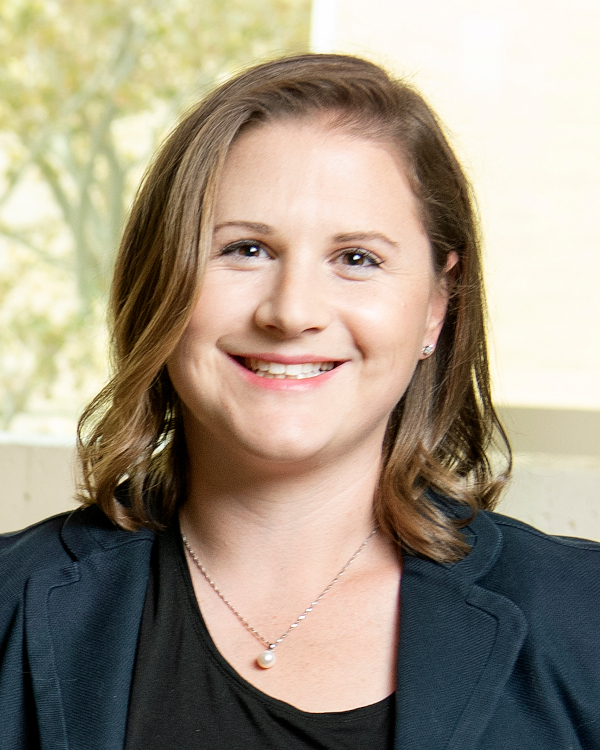
Ariel L. Furst, Ph.D.
Massachusetts Institute of Technology
Project Title: Protecting Microbes So They Can Protect Us
Grant ID: DP2-GM154015
Funded by the National Institute of General Medical Sciences
Ariel L. Furst is the Paul M. Cook Career Development Assistant Professor of Chemical Engineering at MIT. She works at the intersection of biological, electrochemical, and materials engineering to develop equitable technologies to improve human and environmental health. She completed her Ph.D. at Caltech developing non-invasive diagnostics for colorectal cancer and was then an A. O. Beckman Postdoctoral Fellow at UC Berkeley, where she developed sensors to monitor environmental pollutants. She is a 2023 Marion Milligan Mason Awardee, a CIFAR Azrieli Global Scholar for Bio-Inspired Solar Energy, and an ARO Early Career Grantee. She was recently awarded the MIT UROP Outstanding Faculty Mentor Award for her work with undergraduate researchers and is passionate about increasing participation of underrepresented groups in STEM.
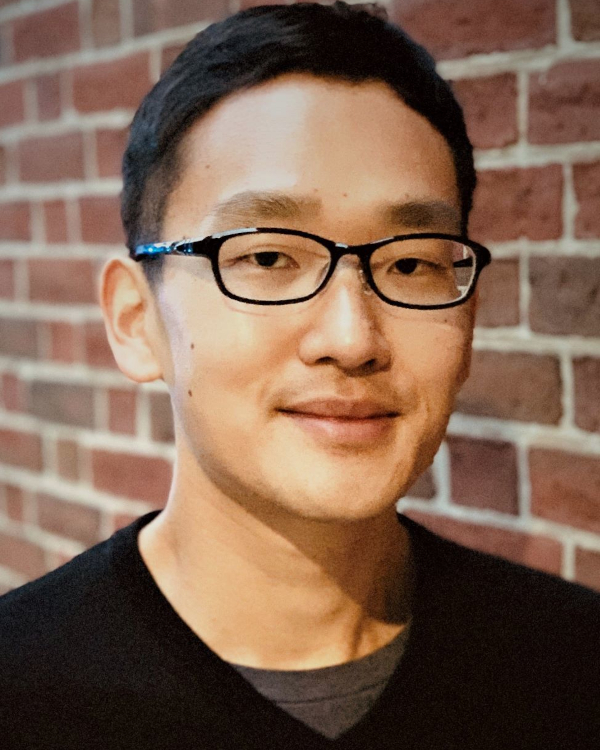
Ruixuan Gao, Ph.D.
University of Illinois Chicago
Project Title: A Biochemical Approach Towards Subcellular, Label-Free Molecular Imaging
Grant ID: DP2-MH136390
Funded by the National Institute of Mental Health
Ruixuan Gao is an Assistant Professor of Chemistry and Biological Sciences at the University of Illinois Chicago (UIC). His research interest lies at the interface of chemistry and biology, with a focus on elucidating the molecular nature of biological structures and processes central to life and human health. His research group designs small-molecule probes, macromolecular matrices, and supramolecular assemblies to detect and quantify biomolecules in intact biological specimens, and develops microscopy and imaging methods to map and track various molecular entities at their natural spatiotemporal scale. His lab uses these tools to investigate the molecular bases of critical biological functions and dysfunctions, including synaptic transmission, neuronal connection, neurodegeneration, and mental disorders. He received his Ph.D. from Harvard University and completed his postdoctoral training at MIT and HHMI Janelia Research Campus.
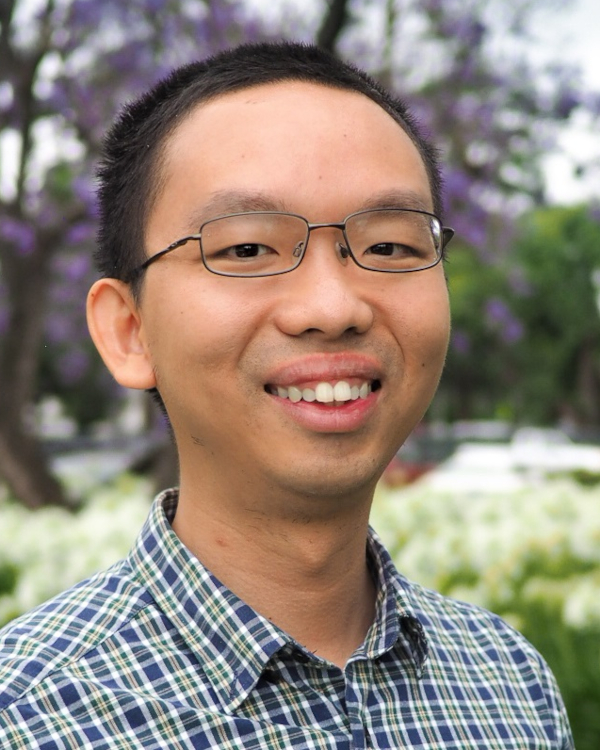
Xiaojing Gao, Ph.D.
Stanford University
Project Title: A Novel Class of Synthetic Receptors to Empower the Age of mRNA Therapies
Grant ID: DP2-EB035891
Dr. Xiaojing Gao is an Assistant Professor of Chemical Engineering from Stanford University. He received a B.S. in Biology from Peking University and a Ph.D. in Biology from Stanford University. He received his postdoctoral training from Biology and Biological Engineering at Caltech. His lab tackles fundamental engineering challenges in mammalian synthetic biology, aiming to empower sense-and-response capabilities in human cells that can be delivered using RNA vectors. The molecular tools they build will be applied to diverse fields such as immunology, neurobiology, and cancer therapy.
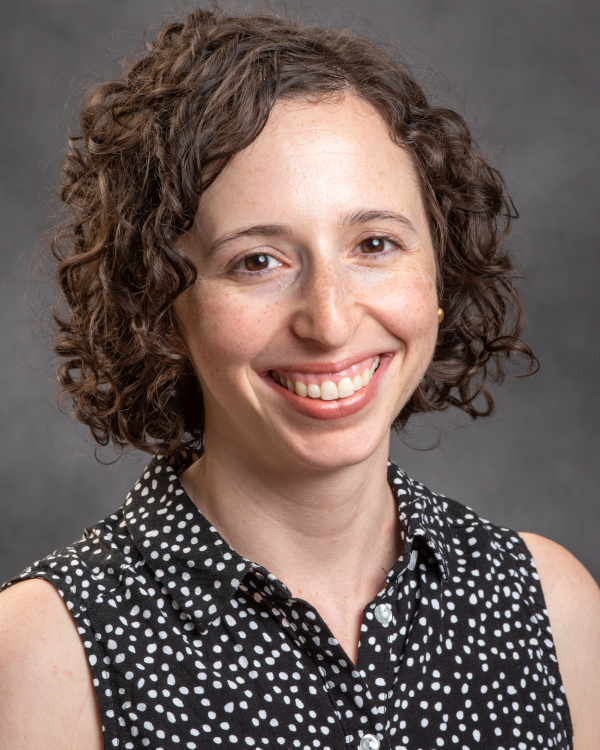
Rachel E. Rosenberg Goldstein, Ph.D., M.P.H.
University of Maryland School of Public Health
Project Title: Water Emergency Team (WET): Community-Driven Rapid Response Team to Evaluate Antibiotic-Resistant Bacteria Exposures and Household Environmental Health Risks from Sewer Overflows and Basement Flooding
Grant ID: DP2-MD019355
Dr. Rachel Rosenberg Goldstein is an Assistant Professor in the Maryland Institute for Applied Environmental Health at the University of Maryland School of Public Health in College Park, MD. Dr. Goldstein received a Ph.D. in Toxicology and Environmental Health and M.P.H. in Environmental Health Sciences from the University of Maryland and a B.A. in Environmental Studies from the University of North Carolina at Chapel Hill. Dr. Goldstein’s Water Quality, Outreach, and Wellness (WOW) Lab works to improve water quality through community-engaged research and outreach. She uses a mixed-methods approach including environmental microbiology, exposure assessment, and outreach and extension to address water quality challenges in underserved communities.
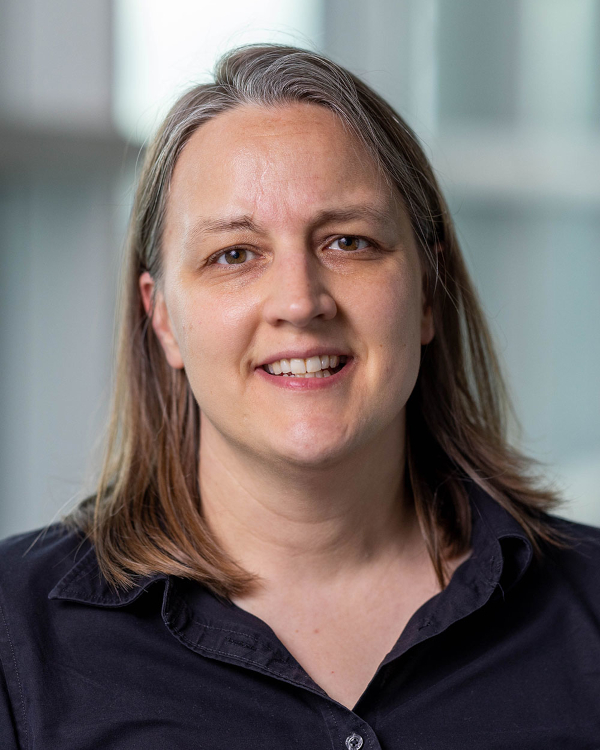
Christine Grienberger, Ph.D.
Brandeis University
Project Title: Unraveling the Synaptic and Circuit Mechanisms Underlying a Plasticity-Driving Instructive Signal
Grant ID: DP2-MH136393
Christine Grienberger is a Medical Doctor by training and holds a Ph.D. from the Technical University Munich, Germany. Prior to joining Brandeis, she was a postdoctoral researcher in Jeff Magee's lab at Janelia Farm Research Campus and Baylor College of Medicine in Houston. Her research bridges cellular and systems neuroscience and focuses on the synaptic, cellular, and circuit mechanisms underlying experience-dependent neural computations in the brain and on the disruption of these computations in animal models of Alzheimer’s disease. Her laboratory uses state-of-the-art experimental techniques, including in vivo whole-cell recordings and two-photon microscopy, optogenetic activity perturbations, and behavioral assays, to study how individual neurons produce behaviorally relevant circuit dynamics that allow our brains to learn.
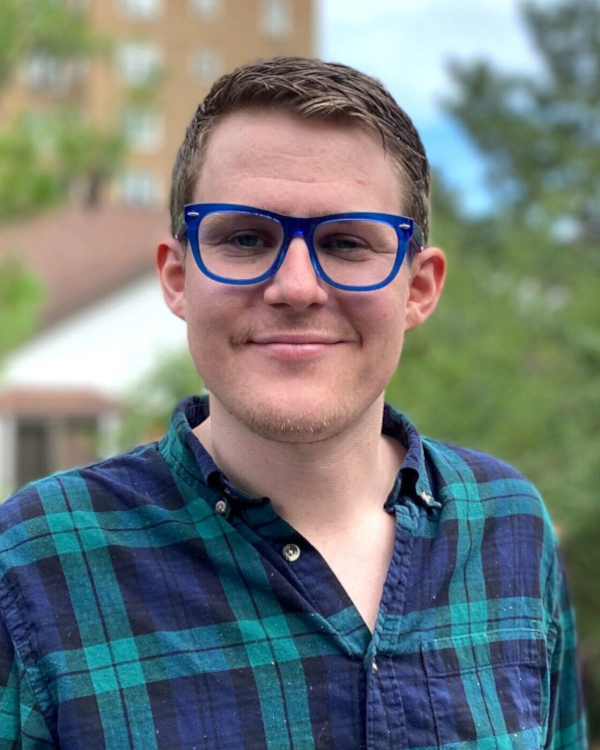
Alex Holehouse, Ph.D.
Washington University School of Medicine in St. Louis
Project Title: Uncovering the Regulatory Logic of Gene Expression Encoded by Disordered Regions
Grant ID: DP2-CA290639
Alex Holehouse is an Assistant Professor in the Dept. of Biochemistry & Molecular Biophysics at Washington University School of Medicine. He did his undergraduate training in biochemistry at the University of Oxford, a Master's in computer science at Imperial College London, and completed his Ph.D. and postdoctoral work in molecular and computational biophysics with Rohit Pappu at Washington University in Saint Louis. His lab is focused on understanding how intrinsically disordered regions (IDRs) – protein regions that lack a stable 3D structure – can mediate complex molecular functions. By combining computational and experimental biophysics with quantitative cell biology and machine learning, his lab develops novel approaches to ask and answer new questions. He is particularly interested in understanding how IDRs evolve, how they enable specific molecular recognition, and how their local context can tune their function.
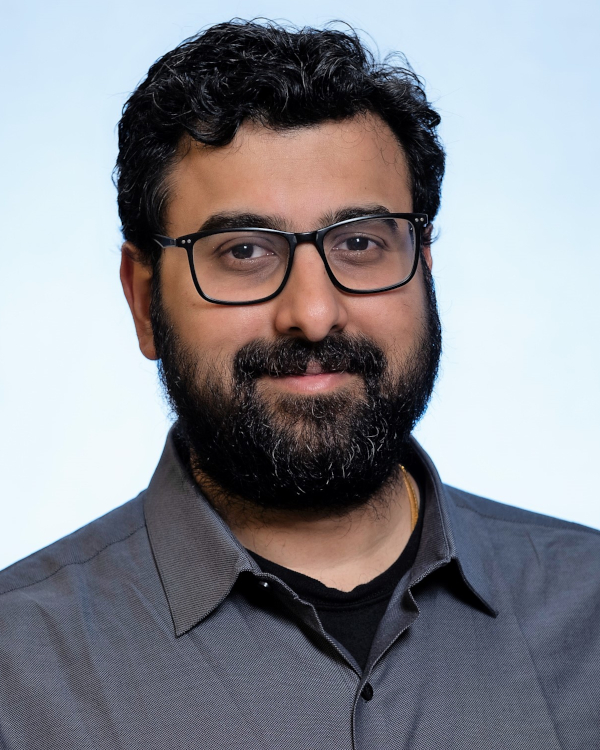
Krishna Jayant, Ph.D.
Purdue University
Project Title: Massively Scalable 3D Electrophysiology and Two-Photon Imaging in Freely-Moving Animals
Grant ID: DP2-MH136494
Funded by the National Institute of Mental Health
Krishna Jayant is an assistant professor in the Weldon School of Biomedical Engineering at Purdue University. His laboratory’s research focuses on delivering biophysically-based accounts of behaviorally relevant computations using novel neurotechnologies. Dr. Jayant completed his graduate training in electrical and computer engineering at Cornell University where he worked with Dr. Edwin Kan on bioelectronics. He subsequently completed postdoctoral training at Columbia University with Dr. Rafael Yuste, Dr. Ken Shepard, and Dr. Ozgur Sahin, researching cutting-edge nanotechnologies to probe synaptic and dendritic biophysics. In addition to the NIH Director’s New Innovator Award, Dr. Jayant has been recognized with an NIH NIBIB Trailblazer award, a Human Frontiers Science Young Investigator grant, a Ralph E. Powe Junior Faculty Enhancement award, and is also a recipient of an Air Force Office of Scientific Research DURIP award.
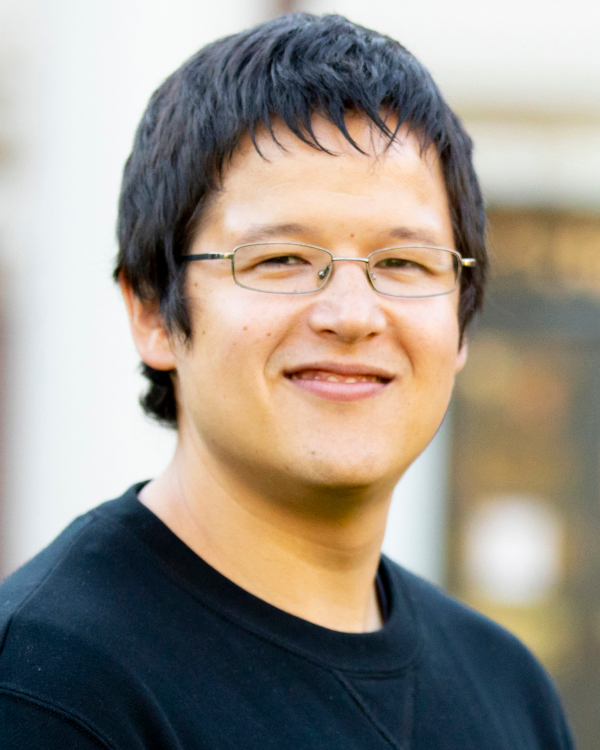
Marco Jost, Ph.D.
Harvard Medical School
Project Title: Capturing, Quantifying, and Understanding Combinatorial Effects in Small Molecule Signaling
Grant ID: DP2-GM154152
Marco Jost is an Assistant Professor of Microbiology at Harvard Medical School. Marco studied biochemistry at the University of Tübingen in Germany, where he completed his diploma thesis with Thilo Stehle solving crystal structures of fungal prenyltransferases, and received his Ph.D. in Biological Chemistry from MIT, working with Cathy Drennan to study the roles of coenzyme B12 in photosensing and radical catalysis. He then conducted post-doctoral work with Jonathan Weissman and Carol Gross at UCSF, where he developed CRISPR approaches to define mechanisms of action of small molecules and to titrate gene expression. His group at Harvard Medical School now seeks to define the chemical underpinnings of host-microbiome interactions.
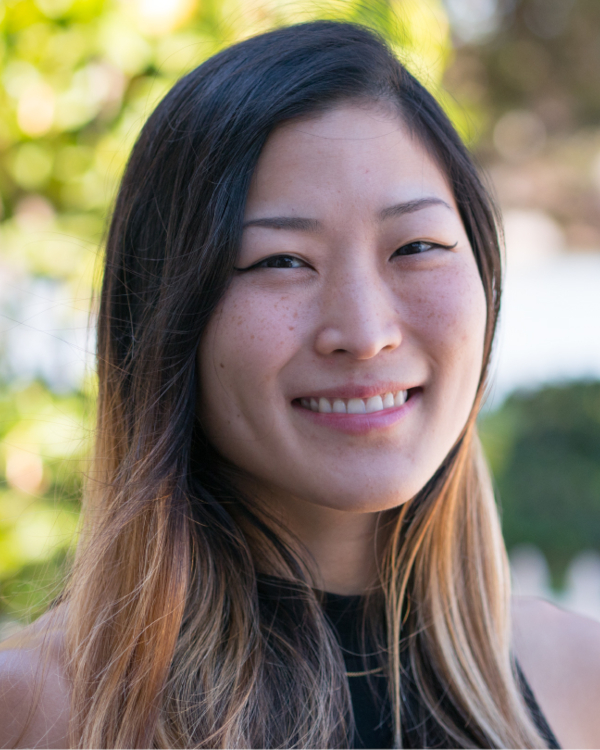
Christina K. Kim, Ph.D.
University of California, Davis
Project Title: Activity-Dependent Probes for Spatially-Defined Proteomics
Grant ID: DP2-MH136588
Christina Kim received her undergraduate degree from Princeton University and a Ph.D. from Stanford University. After completing her postdoctoral fellowship at Stanford University, Christina started her lab in the Center for Neuroscience and Department of Neurology at the University of California, Davis in 2021. Her research develops molecular technologies to study the biochemical and functional properties of neurons that regulate behaviors disrupted in neuropsychiatric disorders.
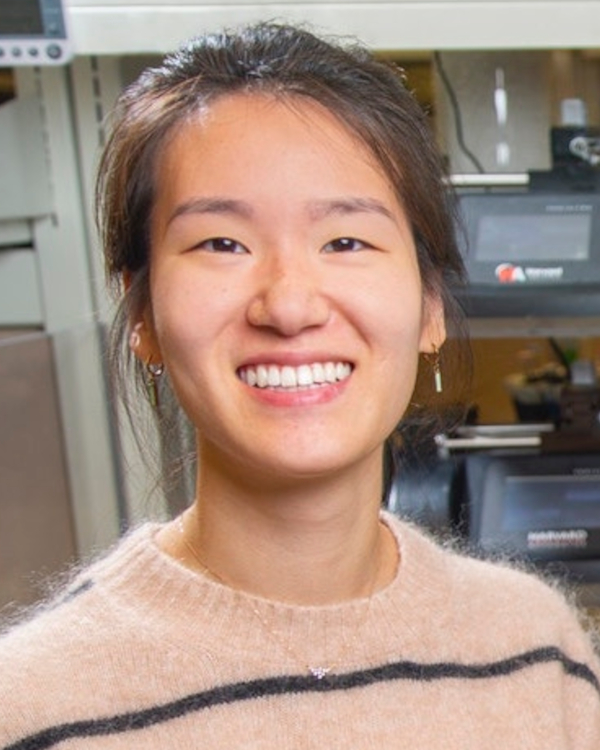
Jina Ko, Ph.D.
University of Pennsylvania
Project Title: Droplet-Based Spatially Encoded Live Cell Digital Extraction
Grant ID: DP2-GM154018
Funded by the National Institute of General Medical Sciences
Jina graduated from Rice University with a B.S. in Bioengineering and a B.A. in French Studies in 2013 and she earned her Ph.D. in Bioengineering at the University of Pennsylvania in 2018. For her postdoctoral training, she worked at Massachusetts General Hospital and the Wyss Institute at Harvard University as a Schmidt Science Fellow and a NIH K99/R00 award recipient. Jina aims to develop micro and nano technologies and accurately measure and profile rare disease biomarkers for personalized medicine.
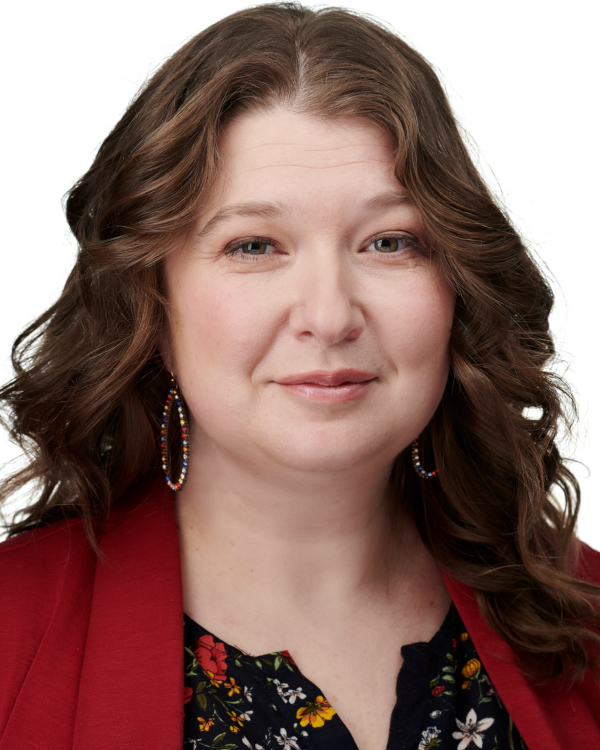
Cheri A. Levinson, Ph.D.
University of Louisville
Project Title: Innovations in Personalizing Treatment for Eating Disorders Using Idiographic Methods and the Impact of Personalization on Psychological, Physical, and Sociodemographic Outcomes
Grant ID: DP2-MH136495
Funded by the National Institute of Mental Health
Dr. Cheri Levinson is an Associate Professor in the Department of Psychological and Brain Sciences and the Department of Pediatrics, Division of Adolescent Psychiatry and Psychology at the University of Louisville, where she is Director of the Eating Anxiety Treatment (EAT) lab. The EAT lab's mission is to (a) conduct cutting-edge research to develop novel treatments for eating disorders, (b) provide high-quality, evidence-based treatment for eating disorders (c) train the next generation of eating disorder researchers and clinicians, (d) distribute scientifically-based prevention programs across the community, (e) advocate for more awareness, better treatment, and services for eating disorders, and (f) work toward a more equitable and inclusive future that alleviates barriers to accessing high-quality treatment, prevention, and research for underserved population. Dr. Levinson’s research focuses on building new treatments for eating disorders, primarily using new technologies, such as individual network analysis, ecological momentary assessment, and wearable sensor technologies. Dr. Levinson is also Founder of the Louisville Center for Eating Disorders, which is the only specialty eating disorder clinic in the state of Kentucky. She has received several awards for her work including the 2023 SSCP Susan Nolen-Hoeksema Early Career Award (2023), University of Louisville 2023 UofL Entrepreneurship and Innovations Awards Trailblazer Award, Association for Psychological Science Rising Star Award, 2021 Association for Psychological Science Rising Star Award, and the 2020 American Psychological Association Theo Blau Award.
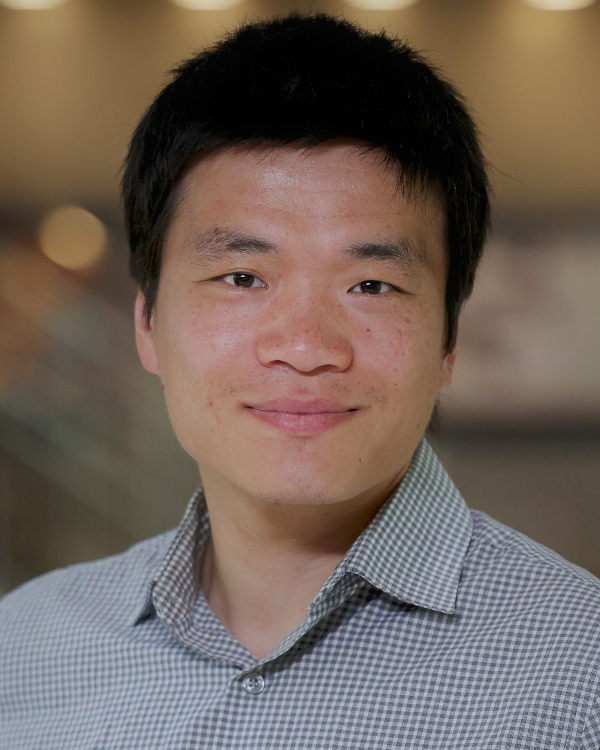
Jiahe Li, Ph.D.
University of Michigan, Ann Arbor
Project Title: Enzymatic and Genetic Strategies for Targeting Disease-Associated Microbial Metabolites
Grant ID: DP2-GM154019
Funded by the National Institute of General Medical Sciences
Jiahe Li is an Assistant Professor in the Department of Biomedical Engineering at the University of Michigan, Ann Arbor. He earned his PhD in Biomedical Engineering at Cornell University with Dr. Michael King in 2015, where he leveraged synthetic biology approaches and cell biology to engineer bacteria and platelets as platforms to address cancer. Later, he performed postdoctoral training with Dr. Paula Hammond at MIT (2015-2018), where he gained new training in RNA chemistry and delivery. Jiahe was a tenure-track Assistant Professor in the Department of Bioengineering at Northeastern University from 2019 to 2023, where he received the NIBIB Trailblazer Award, CDMRP Idea Award, CDMRP Discovery Award and NSF CAREER Award. Dr. Li relocated the lab to the University of Michigan in the summer of 2023, and his research focuses on the development of molecular and live cell-based therapeutics to interrogate and manipulate interactions among therapeutics, the microbiome, and host.
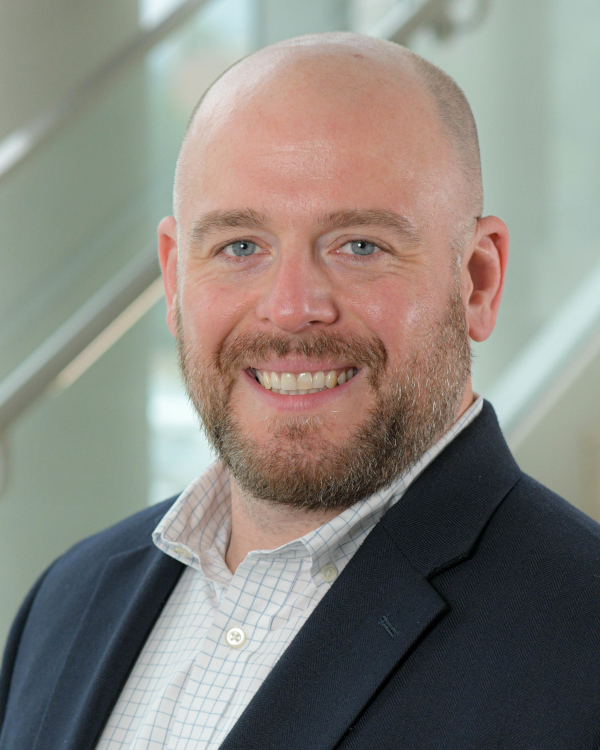
Michael Lodato, Ph.D.
University of Massachusetts Chan Medical School
Project Title: Spatial Single-Cell Analysis of Somatic Mutation in Human Brain During Aging and Neurodegeneration
Grant ID: DP2-AG086139
Funded by the National Institute on Aging
Michael Lodato is an Assistant Professor in the Department of Molecular, Cell, and Cancer Biology at the University of Massachusetts Chan Medical School. He received his B.S. from Hofstra University in New York, where he studied bacterial sporulation in the laboratory of Dr. Joanne Willey, Ph.D. He obtained his Ph.D. from the Massachusetts Institute of Technology under the mentorship of Dr. Rudolf Jaenisch, M.D., where he studied transcriptional regulation during mammalian neurodevelopment, epigenetics, and factor-mediated reprogramming. As a postdoctoral fellow in the laboratory of Dr. Christopher Walsh, M.D./Ph.D. at Boston Children’s Hospital and Harvard Medical School, Dr. Lodato used single-cell whole-genome sequencing to study mosaic mutations in the human brain. His laboratory is focused on understanding the rates, causes, and consequences of somatic mosaicism in the human body.
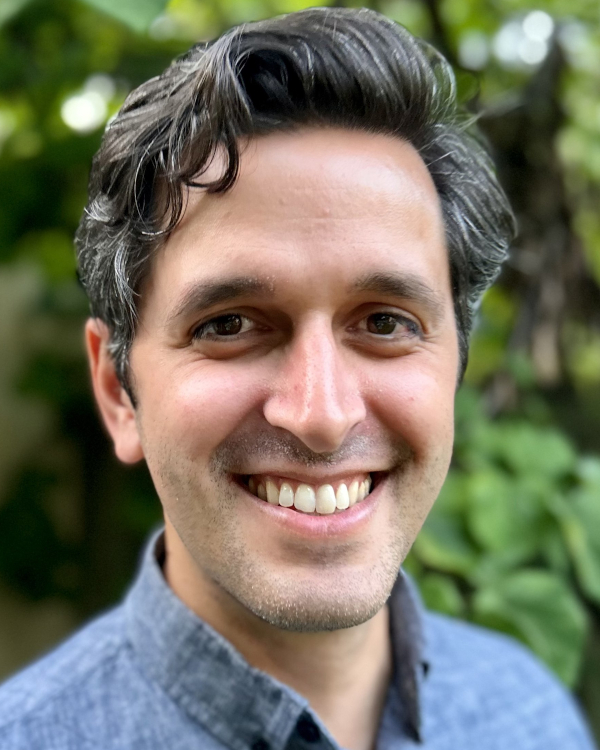
Nathan Lord, Ph.D.
University of Pittsburgh
Project Title: Decoding the Spatial Grammar of Developmental Signaling
Grant ID: DP2-HD115158
Nathan Lord is an Assistant Professor in the Department of Computational and Systems Biology at the University of Pittsburgh School of Medicine. He completed his Ph.D. in Systems Biology in Johan Paulsson's lab at Harvard Medical school where he studied how bacteria control and exploit stochasticity to make reliable cell fate decisions. He then completed his postdoc an Arnold O. Beckman postdoctoral fellow in Alexander Schier’s lab at Harvard University where he explored how embryos prevent and correct errors in development. The Lord Lab now seeks to understand how patterns of signaling and gene expression guide cell fate selection in embryos, stem cells and organoids. Dr. Lord’s work is also supported by a K99/R00 award from the NICHD and a new initiative grant from the Charles E. Kaufman Foundation.
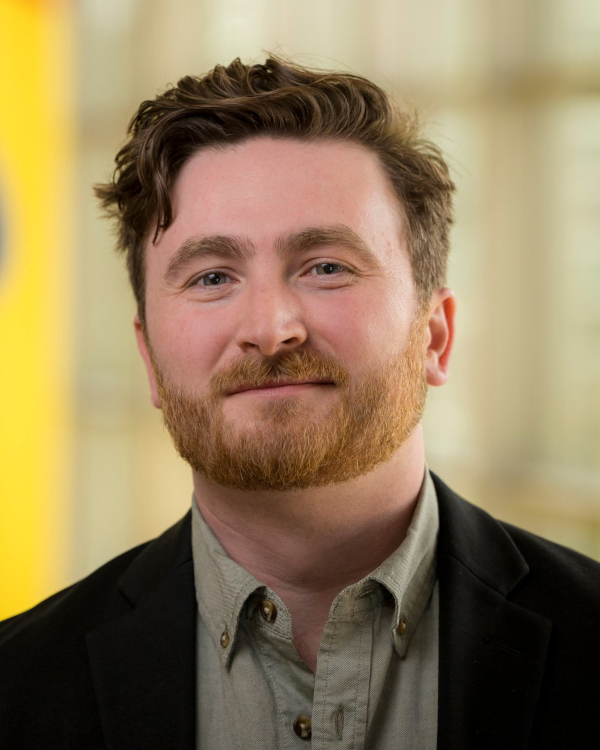
Matthew Lovett-Barron, Ph.D.
University of California, San Diego
Project Title: Functional Maturation of Neural Circuits for Biological Motion Perception and Social Engagement
Grant ID: DP2-EY036251
Matthew Lovett-Barron is an Assistant Professor of Neurobiology at the University of California, San Diego. Dr. Lovett-Barron received a bachelor’s degree from Queen’s University in Canada, a PhD from Columbia University in Dr. Attila Losonczy’s lab, and was a postdoctoral fellow at Stanford University with Dr. Karl Deisseroth. Dr. Lovett-Barron’s lab at UCSD investigates the neurobiology of internal states in larval zebrafish, and studies the perceptual and neural mechanisms of collective movement in schooling glassfish (Danionella cerebrum). In addition to the NIH Director’s New Innovator Award, Dr. Lovett-Barron is a recipient of a Searle Scholar Award, a Klingenstein-Simons Fellowship in Neuroscience, a Packard Foundation Fellowship, an Alfred P. Sloan Research Fellowship, and a Pew Biomedical Scholar Award.

Ravi Maddipati, M.D.
University of Texas Southwestern Medical Center
Project Title: Optogenetic Engineering of Tumor Topography in Native Tissue Environments
Grant ID: DP2-CA290967
Ravi Maddipati serves as an Assistant Professor and CPRIT scholar in medicine at the University of Texas Southwestern Medical Center. After earning a BSE in computer and electrical engineering and an MSE in biomedical engineering from the University of Michigan, he obtained his MD from the Boston University School of Medicine and finished his Internal Medicine residency at Massachusetts General Hospital. He then completed gastroenterology and post-doctoral research fellowships at the University of Pennsylvania. There, his research uncovered the pivotal role of circulating tumor cell clusters and EMT as mediators of metastasis in pancreatic cancer. Now, Dr. Maddipati’s lab develops systems-level strategies, leveraging novel animal models, human tumor samples, and multi-omics technologies to elucidate the mechanisms of tumor-microenvironment interactions that drive metastatic progression and therapeutic heterogeneity in cancer.
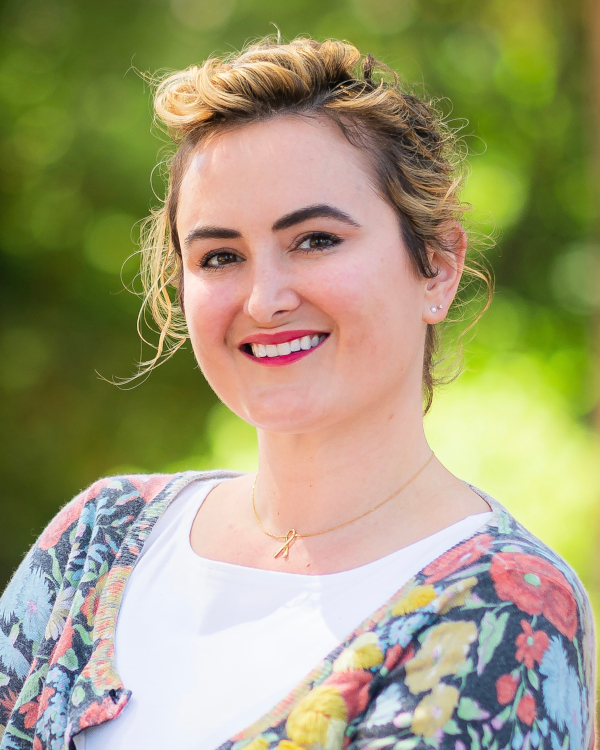
Megan Martik, Ph.D.
University of California, Berkeley
Project Title: Reactivating Regulatory Programs for Regeneration
Grant ID: DP2-HL173858
Dr. Megan Martik is an Assistant Professor of Genetics, Genomics and Development at the University of California, Berkeley. She received her PhD in Genetics and Genomics from Duke University under the supervision of Dr. David McClay. Dr. Martik continued her training at Caltech as a Helen Hay Whitney Fellow with Dr. Marianne Bronner, where she began her work on transcriptional control of neural crest development, evolution, and adult regenerative abilities. Her lab now works to understand the gene regulatory networks that orchestrate cell differentiation in the early embryo and repair processes in the adult body using both zebrafish and human-derived organoid models. In addition to the NIH Director’s New Innovator Award, Dr. Martik has also been awarded an NIH Pathway to Independence Award (K99/R00) and an American Heart Association Career Development Award.
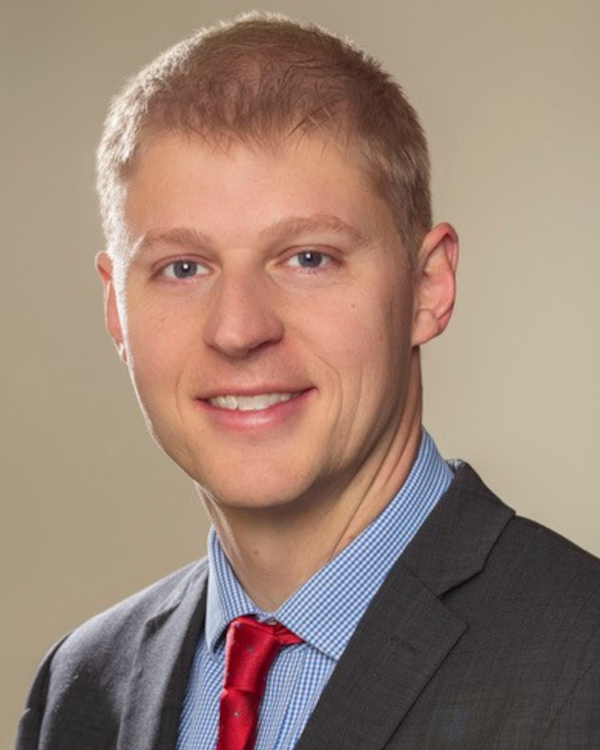
Michael Miller, M.D., Ph.D.
Brigham and Women's Hospital; Harvard Medical School; Boston Children's Hospital; Broad Institute
Project Title: Illuminating Neurodegenerative Tauopathy from Somatic Genomic Landscapes of Single Human Brain Cells
Grant ID: DP2-AG086138
Funded by the National Institute on Aging
Michael Miller is Assistant Professor of Pathology at Harvard Medical School, based at Brigham and Women's Hospital with appointments at Boston Children's Hospital and the Broad Institute. He completed his B.A. in Biological Chemistry and Spanish at Grinnell College, M.D.-Ph.D. from the Dartmouth Geisel School of Medicine with the mentorship of Dr. Surachai Supattapone, anatomic pathology residency and neuropathology fellowship at Brigham and Women’s Hospital, and postdoctoral fellowship in neuroscience and genomics at Boston Children’s Hospital with Dr. Christopher Walsh. In 2022, he joined Brigham and Women’s Hospital and Harvard Medical School as Assistant Professor and started his independent research laboratory, focusing on the pathogenesis of neurodegenerative diseases at the single-cell level, with a major focus on the mechanisms and effects of somatic mutation in human neurons. In addition to the NIH New Innovator Award, Dr. Miller is the recipient of the Doris Duke Foundation Clinical Scientist Development Award, NIH K08 Mentored Clinical Scientist Career Development Award, American Association of Neuropathologists Terry Award for Best Paper in Neurodegenerative Diseases, and grants from the BrightFocus Foundation and Brigham and Women's Hospital.
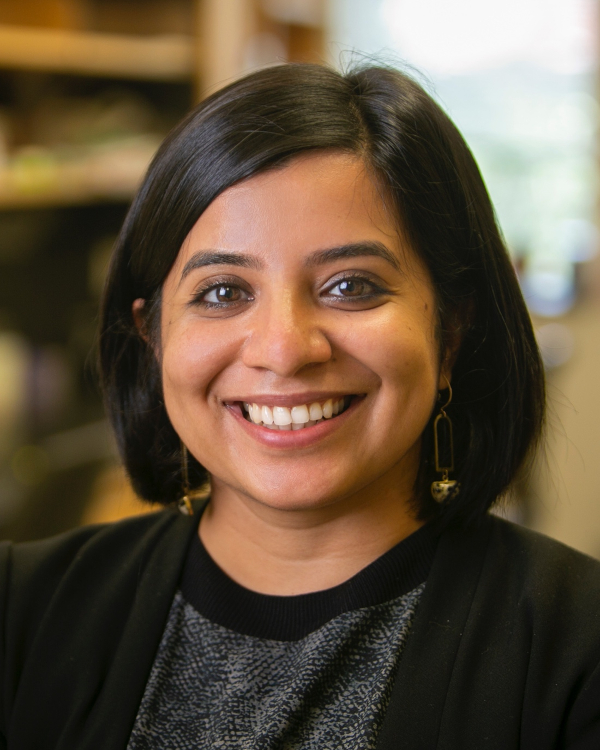
Akankshi Munjal, Ph.D.
Duke University
Project Title: Multi-Scale Feedbacks for Robust Organ Development
Grant ID: DP2-HD115157
Akankshi Munjal is an Assistant Professor in the Department of Cell Biology in the School of Medicine at Duke University. She grew up in India and received her BS from the University of Delhi and MS from the National Centre for Biological Sciences in Bangalore. She did her Ph.D. thesis with Professor Thomas Lecuit in the Developmental Biology Institute at Aix-Marseille University in France, where she worked on mechano-chemical regulation of tissue morphogenesis using fruit flies. Her postdoctoral research in Professor Sean Megason’s lab at Harvard Medical School was recognized with a Human Frontiers Science Fellowship and NICHD K99/R00 Pathway to Independence Award. The Principles of Tissue Morphogenesis (Munjal) Lab at Duke is an interdisciplinary, collaborative, and inclusive research group focused on building a new integrated framework for morphogenesis with generalizable principles to advance our understanding of organ formation, malformation, and regenerative medicine using zebrafish.
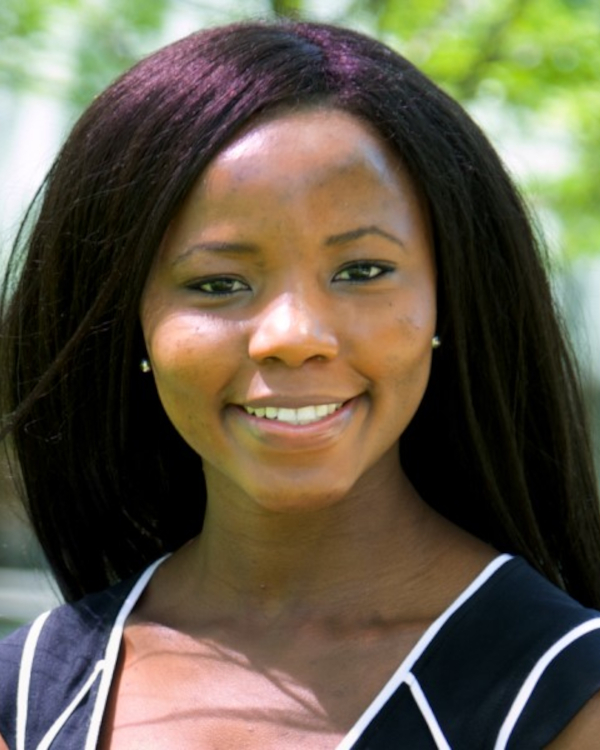
Samira Musah, Ph.D.
Duke University
Project Title: Harnessing Stem Cells and Synthetic Gene Circuits to Repair Glomerular Injury
Grant ID: DP2-DK139544
Dr. Samira Musah is an assistant professor at Duke University, jointly appointed in the Department of Biomedical Engineering and the Department of Medicine, Division of Nephrology. Research in her laboratory aims to understand the roles of molecular and biophysical cues in organ development and how these processes can be harnessed to understand disease mechanisms and develop new therapeutic strategies. She is known for developing novel methods for stem cell differentiation and engineering functional models of human tissues and organs. In addition to the NIH Director's New Innovator Award, Dr. Musah has received a Whitehead Scholarship in Biomedical Research, Burroughs Wellcome Fund PDEP Career Transition Award, Baxter’s Young Investigator Award, Genentech Research Award, MEDx Biomechanics of Injury Repair Award, and Duke Innovation & Entrepreneurship Initiative Award. She was featured in Cell Stem Cell Early-Career Researchers, Nature Biotechnology Outstanding & Trailblazing Researchers, and named a Rising Star in Biomedical Engineering at MIT.
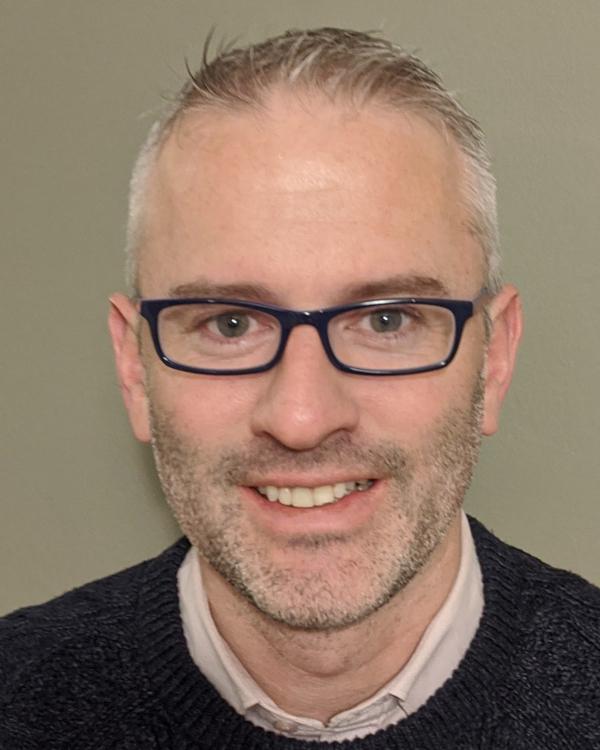
Mike O'Donnell, Ph.D.
Yale University
Project Title: Molecular Determinants of Host-Feeding Manipulation and Microbial Colonization
Grant ID: DP2-GM154014
Funded by the National Institute of General Medical Sciences
Mike O'Donnell was an undergraduate at Drexel University in Philadelphia, PA. He completed his Ph.D. at the University of Pennsylvania under the guidance of Greg Bashaw. Mike trained as a postdoctoral fellow in the lab of Piali Sengupta at Brandeis University. At Yale University, Mike now studies how gut microbes influence behavior through chemical communication. The lab aims to understand at a systematic and fundamental level how intestinal microbiota alter feeding behavior to impact organismal health and fitness.
Kaspar Podgorski, Ph.D.
Allen Institute for Neural Dynamics
Project Title: Measuring Input-Output Operations of Cortical Neurons with Large-Scale Neurotransmitter Imaging
Grant ID: DP2-NS136990
Kaspar Podgorski received a B.Sc. in artificial intelligence, cognitive science, and neuroscience from the University of Toronto, and a PhD in neuroscience from the University of British Columbia. He then joined the HHMI Janelia Research Campus, where his lab developed microscopes and genetically encoded neurotransmitter indicators for recording synaptic activity. Kaspar joined the Allen Institute for Neural Dynamics in 2021, where his research group studies input-output transformations performed by neurons and brain circuits.
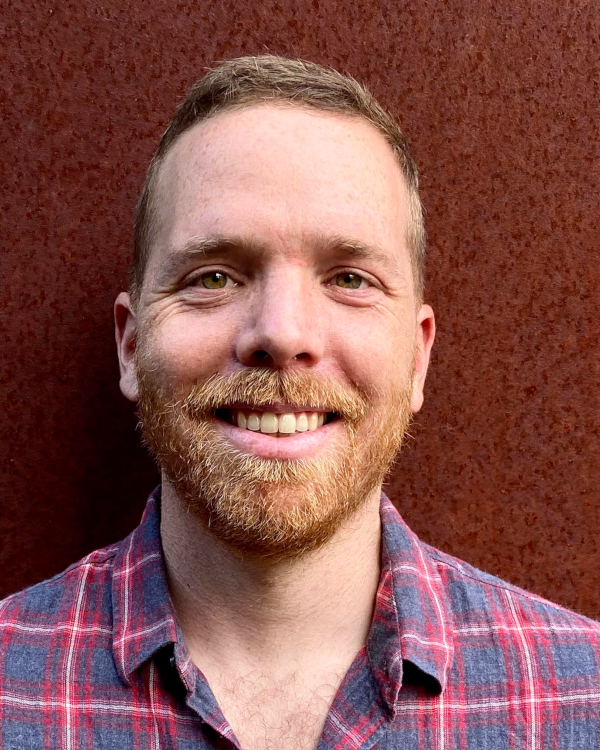
John P. Ray, Ph.D
Benaroya Research Institute
Project Title: Investigating Genetic and Epigenetic Control of T Cell Function in Autoimmunity
Grant ID: DP2-AI183504
John P. Ray is an Assistant Member in the Center for Systems Immunology at the Benaroya Research Institute. He received his PhD in Immunobiology in Dr. Joe Craft’s lab at Yale University where he worked on signaling and metabolic components that drive T cell differentiation into T helper cell subsets. He completed his postdoctoral fellowship with Dr. Nir Hacohen at the Broad Institute of MIT and Harvard, where his work focused on determining the human genetic variants that drive autoimmune diseases using genomic perturbation methods in immune cell lines. The Ray lab focuses on dissecting the mechanisms of autoimmune disease-causal genetic variants in primary T cells, defining their effects on gene expression networks and cellular function, and connecting variant effects to disease onset and severity in human cohorts with disease and in animal models.
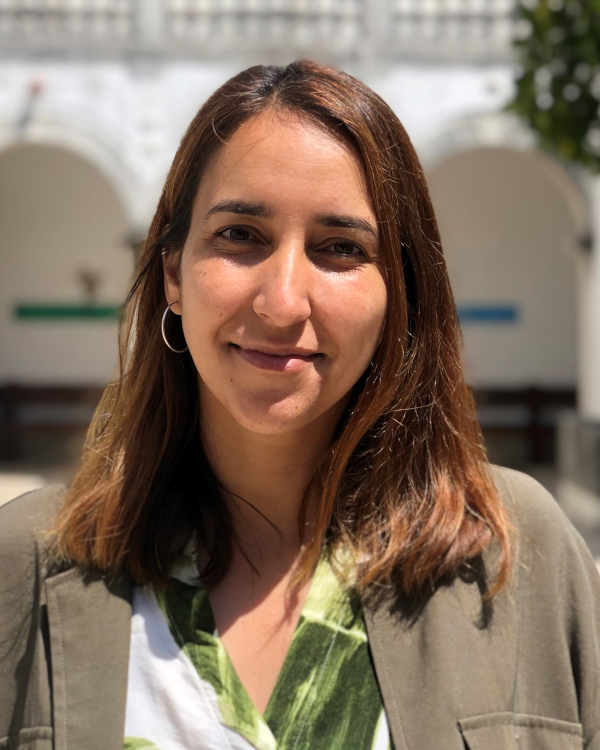
Filipa Rijo- Ferreira, Ph.D.
University of California, Berkeley
Project Title: Defining and Exploiting the Circadian Clocks in Malaria Parasites
Grant ID: DP2-GM154010
Funded by the National Institute of General Medical Sciences
Filipa Rijo-Ferreira is an Assistant Professor in Berkeley Public Health and Molecular & Cell Biology at the University of California Berkeley and a Chan Zuckerberg Biohub Investigator. The Rijo-Ferreira lab takes an integrated approach to study circadian rhythms in parasitic diseases, in particular Malaria and Sleeping sickness. From next-generation sequencing to cellular and behavioral assays, the lab investigates the daily interactions of these parasites with their hosts and vectors. The Rijo-Ferreira Lab is committed to science communication and efforts to engage children primarily from underrepresented minorities in the exciting world of the life sciences. Filipa is a NIH Pathway to Independence awardee, a recipient of the Brown-Goldstein Excellence in Postdoctoral research award, a STAT Wunderkind and a Searle Scholar.
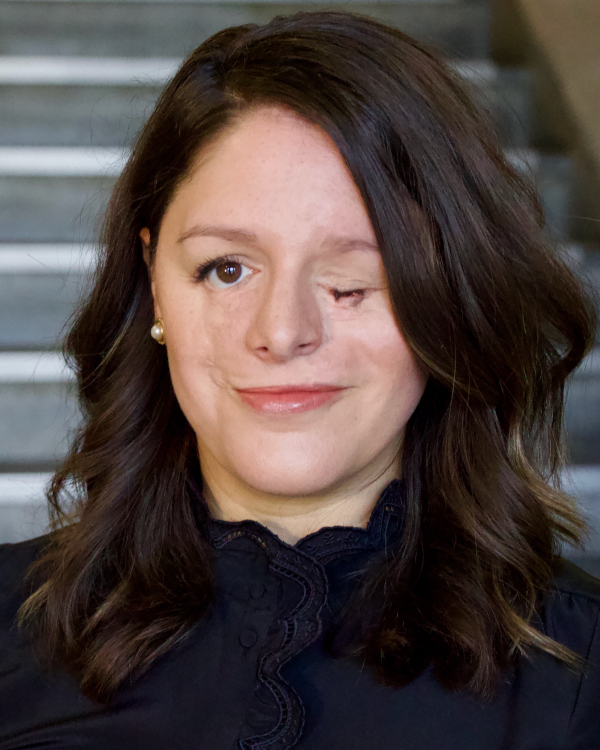
Natalia M. Rodriguez, Ph.D., M.P.H.
Purdue University
Project Title: Addressing Cervical Cancer Disparities Among People Experiencing Homelessness
Grant ID: DP2-MD019356
Dr. Natalia Rodriguez is an Assistant Professor of Public Health and Biomedical Engineering at Purdue University, and Associate Member of the Indiana University Simon Comprehensive Cancer Center. Dr. Rodriguez earned B.S. degrees in Chemical Engineering and Biology from M.I.T., a Ph.D. in Biomedical Engineering from Boston University, an M.P.H. from the Harvard T. H. Chan School of Public Health, and completed postdoctoral training in the Medical Devices Unit of the World Health Organization. In 2019, she started the Health TechQuity Lab, an interdisciplinary research group focused on the design and implementation of rapid diagnostic tests to address health disparities. By meaningfully engaging underserved communities in translational science, her lab employs participatory methodologies to increase adoption of technological innovation, empower community health workforces, and improve health outcomes for vulnerable populations. In addition to the NIH Director’s New Innovator Award, she is also the recipient of a career development award from the National Cancer Institute.
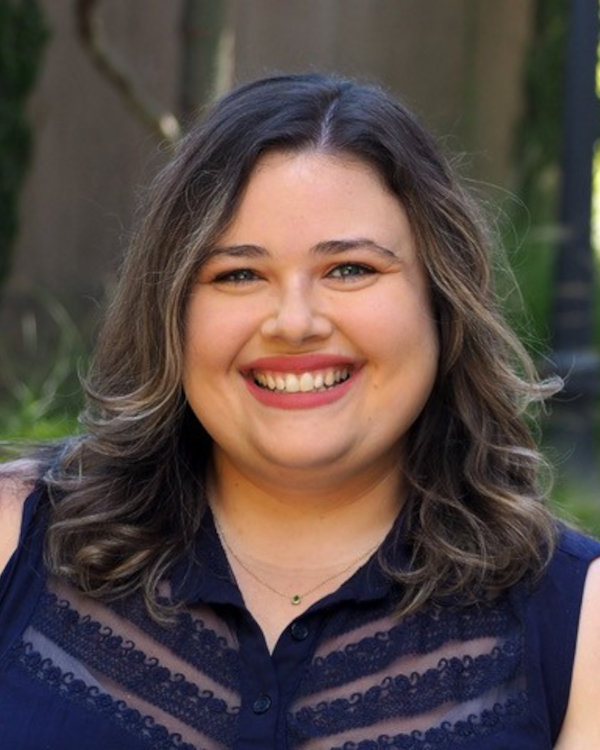
Danielle L. Schmitt, Ph.D.
University of California, Los Angeles
Project Title: Imaging Spatiotemporal Regulation of Acetyl-CoA
Grant ID: DP2-GM154012
Funded by the National Institute of General Medical Sciences
Danielle L. Schmitt is an Assistant Professor in the Department of Chemistry and Biochemistry at the University of California, Los Angeles. Dr. Schmitt received her Ph.D. from University of Maryland, Baltimore County with Prof. Songon An in the Department of Chemistry and Biochemistry, where she studied mechanisms for the compartmentalization of metabolic pathways using microscopy-based approaches. She completed her postdoctoral training at University of California, San Diego as a University of California President’s Postdoctoral Fellow with Prof. Jin Zhang in the Department of Pharmacology. In her postdoctoral work, Dr. Schmitt developed and used genetically encoded biosensors for kinase activity to uncover mechanisms for compartmentalization of signaling networks. Dr. Schmitt’s research focuses on developing genetically encoded microscopy-based tools to identify mechanisms for the compartmentalized regulation of metabolism and to understand how this is perturbed in disease.
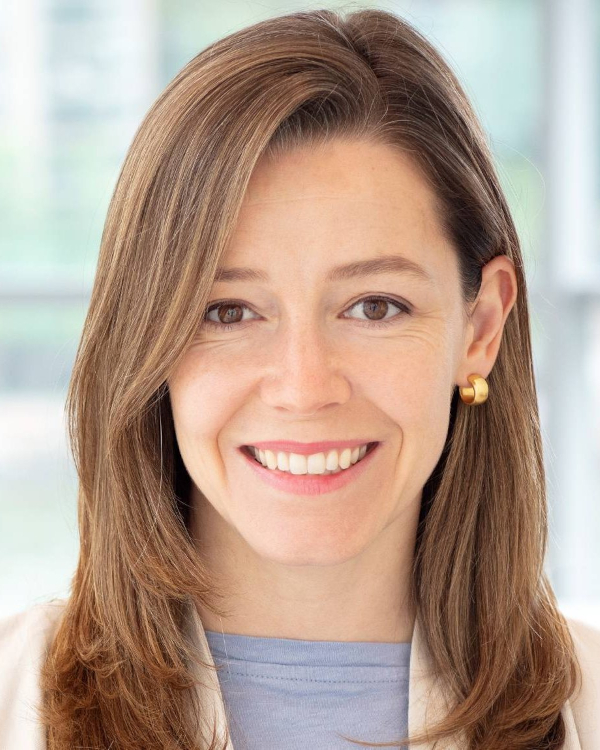
Amy Shyer, Ph.D
The Rockefeller University
Project Title: Studying the Cellular Ecology of Organ Formation Using a Novel Tissue Reconstitution System
Grant ID: DP2-DE033856
Amy Shyer earned her B.S. in Psychobiology from UCLA where she studied synaptic transmission in Drosophila. For her Ph.D. at Harvard, she bridged experimental developmental biology with biophysics through work with developmental geneticist Cliff Tabin and applied mathematician L. Mahadevan. As a Miller Research Fellow at UC Berkeley, she worked with Richard Harland and collaborated with Alan Rodrigues, intersecting embryology with bioengineering tools to expose relationships between morphogenesis and mechanotransduction. In 2018, she joined the Rockefeller University as an assistant professor and head of the Laboratory of Morphogenesis where she co-directs the lab with Alan Rodrigues. She has been awarded a Burroughs Wellcome Career Award at the Scientific Interface, and is an Irma Hirschl/Monique Weill-Caulier Trust Research Awardee as well as a Searle Scholar.
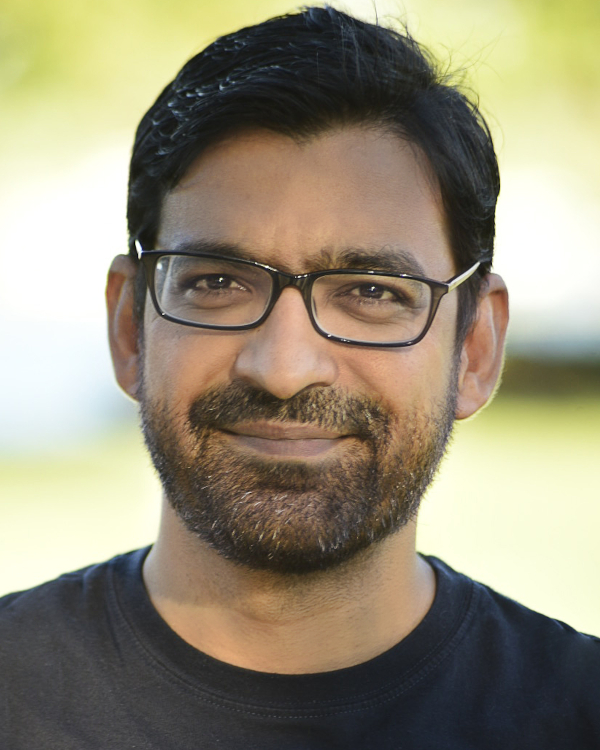
Param Priya Singh, Ph.D.
University of California, San Francisco
Project Title: Decoding Natural Protective Mechanisms During Diapause and Longevity to Counter Aging
Grant ID: DP2-AG086979
Dr. Singh is an Assistant Professor of Anatomy at the University of California, San Francisco (UCSF) and a member of the Bakar Aging Research Institute and the Bakar Computational Health Science Institute at UCSF. Dr. Singh received his M.S. in Bioinformatics from the University of Pune in India and worked as a Software Engineer before receiving his Ph.D. in computational genomics from the Institute Curie in France. His postdoctoral work in Anne Brunet’s lab at Stanford University was focused on developing African killifish as a rapid and scalable model to study aging, age-related diseases, and a form of ‘suspended animation’ called diapause. Dr. Singh’s current research leverages the unique biology of killifish to decode the gene regulatory networks underlying vertebrate diapause and longevity. Using the lens of evolution, he is interested in translating the protective benefits of diapause to counter aging and age-related diseases.
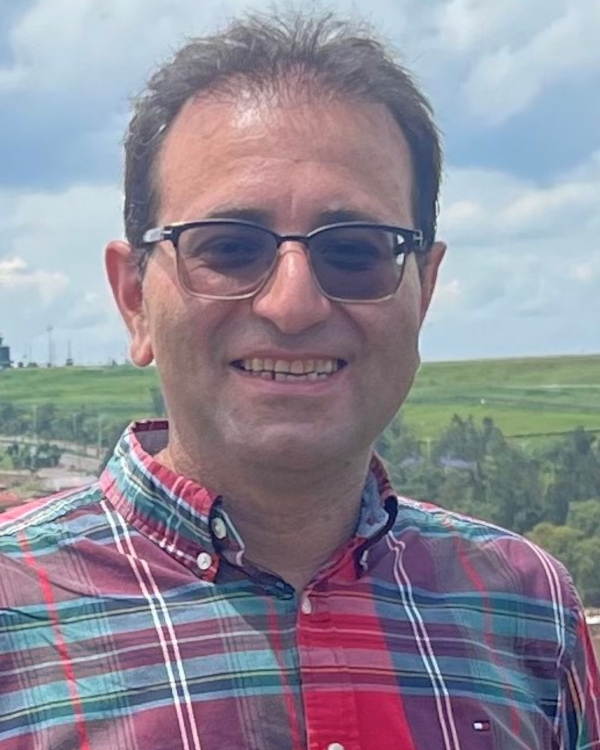
Mahdi Soltanolkotabi, Ph.D.
University of Southern California
Project Title: Reliable AI for Medical Image Reconstruction
Grant ID: DP2-LM014564
Mahdi Soltanolkotabi is the director of the center on AI Foundations for the Sciences (AIF4S) at the University of Southern California. He is also an associate professor in the Departments of Electrical and Computer Engineering, Computer Science, and Industrial and Systems engineering where he holds an Andrew and Erna Viterbi Early Career Chair. Prior to joining USC, he completed his PhD in electrical engineering at Stanford in 2014. He was a postdoctoral researcher in the EECS department at UC Berkeley during the 2014-2015 academic year. His research focuses on developing the mathematical foundations of modern data science via characterizing the behavior and pitfalls of contemporary nonconvex learning and optimization algorithms with applications in deep learning, large scale distributed training, federated learning, computational imaging, and AI for scientific and healthcare applications.
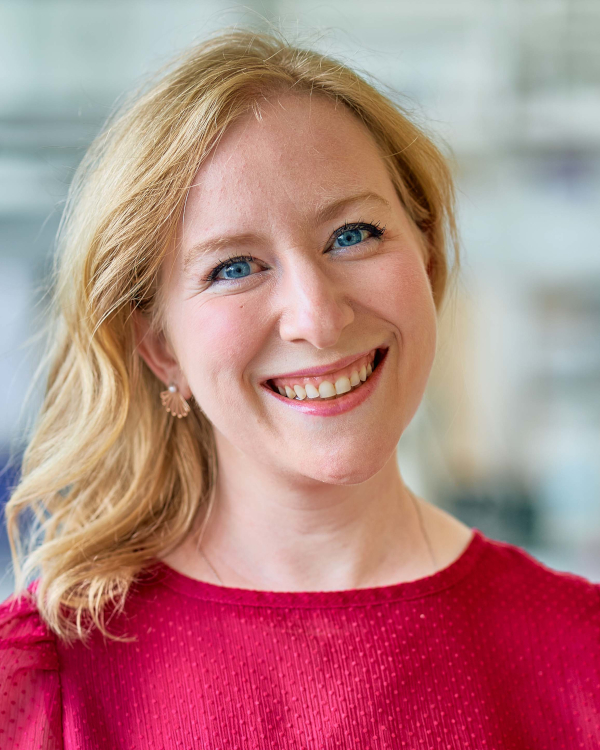
Sarah Stern, Ph.D.
Max Planck Florida Institute for Neuroscience
Project Title: Identifying Neurons for Interoception Using Simultaneous Profiling of Activity- and Projection- Specific Populations
Grant ID: DP2-DA060436
Sarah Stern is a Research Group Leader at the Max Planck Florida Institute for Neuroscience, where she leads the Integrative Neural Circuits and Behavior group. She received a B.A. magna cum laude from New York University with honors in Psychology, and a PhD. from the Icahn School of Medicine at Mount Sinai under the mentorship of Cristina Alberini. Dr. Stern then pursued postdoctoral training with Jeffrey Friedman at the Rockefeller University, where she focused on identifying top-down neural circuits and associated mechanisms underlying non-homeostatic feeding behaviors. Her lab opened in January 2021, where her team studies the function of the insular cortex in feeding and interoception. In addition to the New Innovator Award, Dr. Stern was a 2021 STAT Wunderkind and has received both F31 and F32 NRSA Fellowships, a BRAIN Initiative K99/R00, a NARSAD Young Investigator Award, and the One Mind Foundation Rising Star Award.
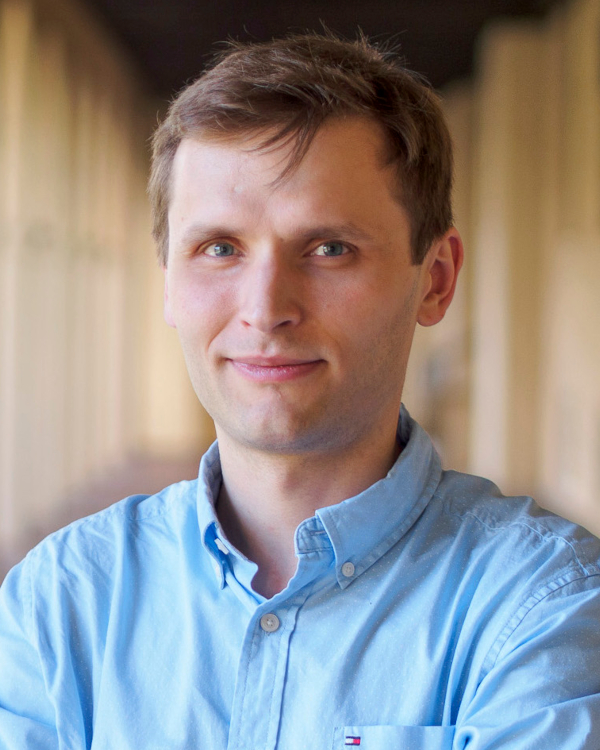
Jerzy O. Szablowski, Ph.D.
Rice University
Project Title: Monitoring Neuronal Activity with a Blood Test - Released Markers of Activity (RMA)
Grant ID: DP2-EB035905
Jerzy Szablowski is an Assistant Professor of Bioengineering at Rice University. His laboratory is dedicated to make scientific discovery and therapeutic development faster, easier, and cheaper. To achieve this, he engineers new technologies for noninvasive high-throughput control and monitoring of cells in deep tissues. Jerzy received his BSc in Biological Engineering from MIT and his PhD in Bioengineering from Caltech, working with Peter Dervan. He then completed postdoctoral fellowship in Chemical Engineering at Caltech in Mikhail Shapiro's laboratory. In addition to the NIH New Innovator Award, he is a recipient of several awards, including the Packard Fellowship for Science and Engineering, DARPA Young Faculty Award, NARSAD Young Investigator grant, and the NIH NIBIB Trailblazer.
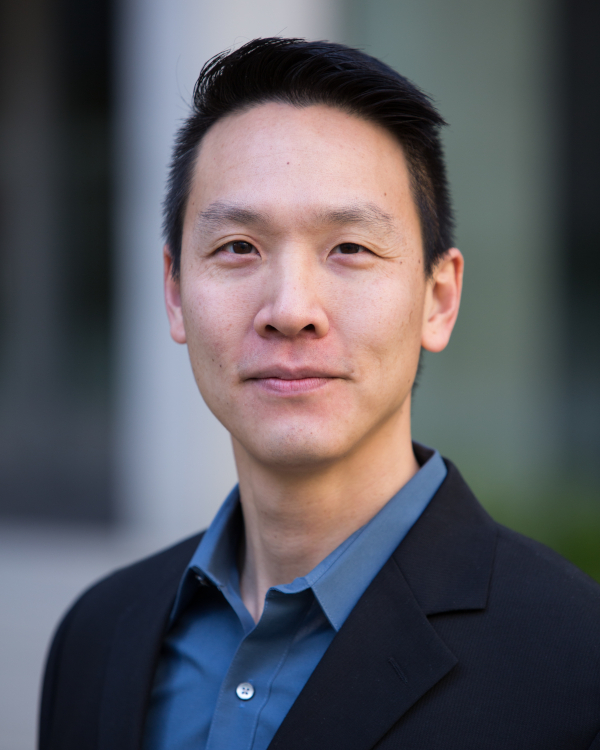
Geoffrey Tison, M.D., M.P.H.
University of California San Francisco
Project Title: A Physiologically-Focused Approach to Training Multi-Modality AI Algorithms in Medicine
Grant ID: DP2-HL174046
Dr. Geoff Tison is a physician-scientist and an Associate Professor in the Division of Cardiology and the Bakar Computational Health Sciences Institute at the University of California, San Francisco (UCSF). A practicing cardiologist, he completed Internal Medicine training at the Johns Hopkins Hospital and cardiology fellowship at UCSF, while also receiving formal research training in epidemiology, statistics and machine learning/artificial intelligence. He leads a computational lab at UCSF focused on improving cardiovascular disease phenotyping and prediction by applying artificial intelligence and statistical methods to large-scale medical data. Dr. Tison’s prior work has contributed to several foundational applications of artificial intelligence in medicine across various modalities including electrocardiograms, echocardiograms, photoplethysmography and angiography.

Christina Towers, Ph.D.
The Salk Institute for Biological Studies
Project Title: Tracking the Mechanisms of Adaptation to Autophagy Inhibition
Grant ID: DP2-CA290705
Christina Towers received her BS from the University of Miami, FL. She went on to receiver her PhD in Molecular Biology under the mentorship of Dr. Heide Ford at the University of Colorado Anschutz Medical Campus and then completed her post-doctoral studies with Dr. Andrew Thorburn in Colorado as well. As an assistant professor at The Salk Institute, her work focuses on cellular recycling processes to better understand how to target them in cancer. With their unique expertise in cell biology and metabolism as well as tool development, her group uses a deep understanding of fundamental biology to identify targets to better treat human disease.

Neil Vasan, M.D., Ph.D
Columbia University Irving Medical Center
Project Title: Base-Editing the Cancer Kinome to Enable Drug Discovery
Grant ID: DP2-CA290245
Neil Vasan is a physician-scientist in the Department of Medicine and the Herbert Irving Comprehensive Cancer Center at Columbia University Irving Medical Center. The Vasan Lab (vasanlab.com) uses functional genomics to understand how oncoproteins regulate breast cancer cell signaling, growth, and therapeutic response. Neil received his A.B./A.M. from Harvard University and M.D./Ph.D. from Yale University School of Medicine and completed clinical training in internal medicine at Massachusetts General Hospital and in medical oncology at Memorial Sloan Kettering Cancer Center. As a postdoctoral fellow, he identified double PIK3CA mutations as an oncogenic alteration, which has gone from bench to bedside as a cancer genomic biomarker. His research awards include the NIH K08, Susan G. Komen Career Catalyst Research grant, American Association for Cancer Research (AACR) NextGen Star, and American Society for Clinical Investigation (ASCI) Young Physician-Scientist Award. Neil is an active clinical oncologist treating patients with breast cancer and serves as a standing member of the Oncologic Drugs Advisory Committee (ODAC) for the FDA.

Humsa Venkatesh, Ph.D.
Brigham and Women's Hospital & Harvard Medical School
Project Title: Unraveling Neural Circuitry in Peripheral Cancer Pathogenesis: From Local Innervation to Systemic Influences
Grant ID: DP2-CA290968
Humsa Venkatesh is an Assistant Professor in Neurology at the Brigham and Women’s Hospital & Harvard Medical School. Her research studies the electrical components of tumor pathophysiology and highlights the extent to which neural activity controls and facilitates disease progression. The understanding of these co-opting mechanisms has led to novel strategies to broadly treat cancers, by disabling their ability to electrically integrate into neural circuitry. Her pioneering research in this emerging field of cancer neuroscience aims to harness the systems level microenvironmental dependencies of tumor growth to develop innovative therapeutic treatments. Dr. Venkatesh received her undergraduate degree from the University of California, Berkeley and her Ph.D. from Stanford University. In addition to the New Innovator Award, she is the recipient of the NIH K99/R00 Pathway to Independence Award, the Sontag Foundation Distinguished Scientist Award, the Searle Scholar Award, the Technology Review’s Innovators Under 35, the McKnight Foundation Neurobiology of Brain Disorders Award, and the AAAS & NCI Wachtel Prize in Cancer Research.
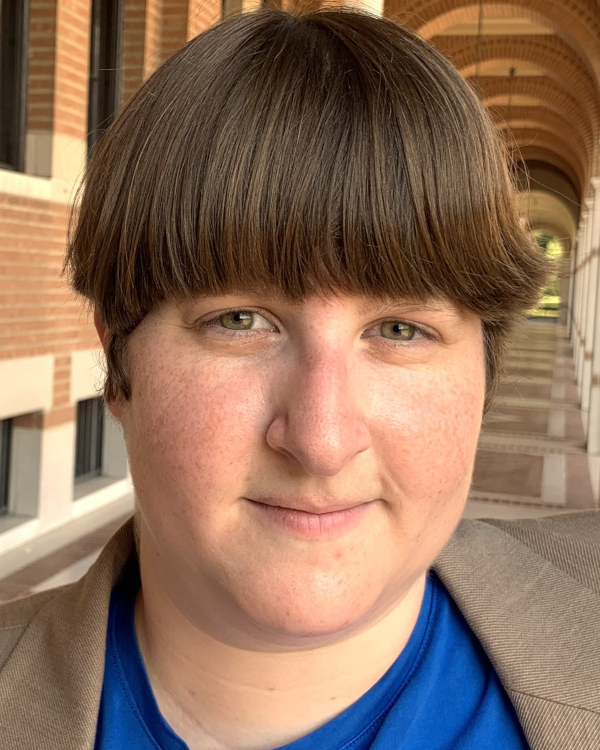
Julea Vlassakis, Ph.D.
Rice University
Project Title: Deep Phenotyping of Fusion Oncoprotein-Driven Pediatric Cancer Metastasis with Single-Cell Proteomics
Grant ID: DP2-CA290802
Dr. Julea Vlassakis earned her B.A. in Chemistry and Physics from Smith college in 2012 before completing her Ph.D. in bioengineering and postdoc in the Herr Lab at UC Berkeley. As an Assistant Professor of Bioengineering at Rice University she directs the Microtechnologies Laboratory for Pediatric Oncology. Her lab’s goal is to advance targeted and precision therapies for pediatric cancers with a focus on Ewing sarcoma. To study the unique biochemistry and biophysics of fusion oncoprotein-driven cancers her group develops single-molecule and single-cell technologies at the micro and nano scales of cancer biology. Her research has garnered several honors including an NSF Graduate Research Fellowship, Burroughs Wellcome Fund Career Award at the Scientific Interface, and the CPRIT Scholar Award.
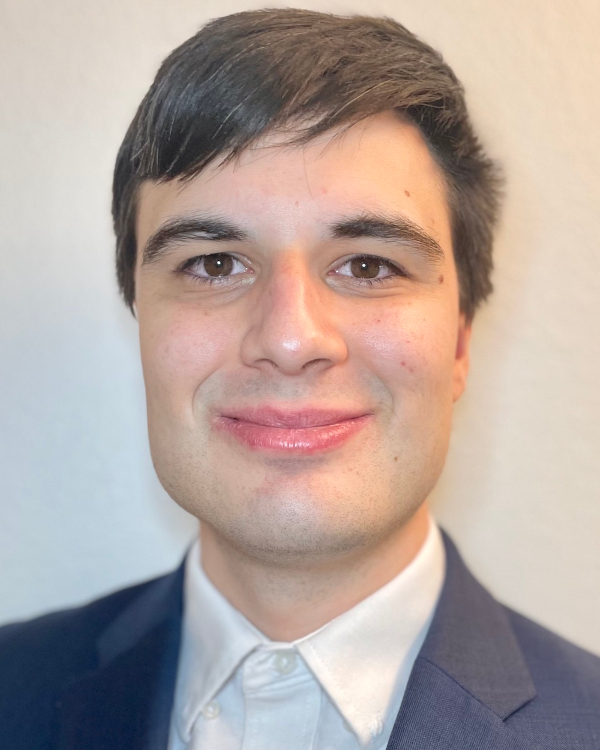
Peter Washington, Ph.D.
University of Hawaii at Manoa
Project Title: Crowd-Powered Machine Learning to Diagnose ASD and ADHD in Adolescents from Digital Social Interactions
Grant ID: DP2-EB035858
Peter Washington is an Assistant Professor in the Information & Computer Sciences department at the University of Hawaiʻi at Mānoa and the Director of the Hawaiʻi Digital Health Lab. Prior to this role, he completed a PhD in Bioengineering at Stanford University, an MS in Computer Science at Stanford University, and a BA in Computer Science at Rice University. His research interests lie at the intersection of healthcare, human-centered computing, artificial intelligence, and data science. He is seeking to explore ways that crowdsourcing and machine learning can be fused to enable precision digital healthcare.
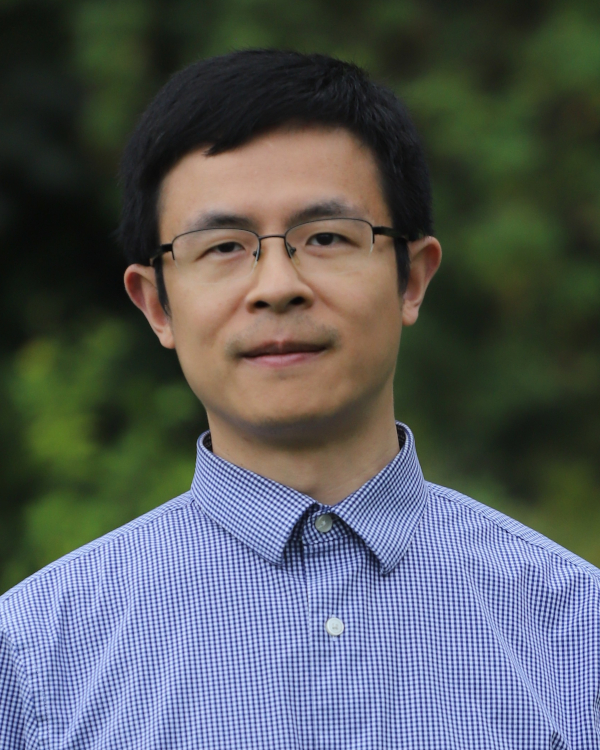
Liangqi Frank Xie, Ph.D.
Cleveland Clinic Lerner Research Institute
Project Title: Live-Cell Chromatin Imaging and Biology: Application to Extrachromosomal DNA
Grant ID: DP2-GM154017
Funded by the National Institute of General Medical Sciences
Liangqi Frank Xie is an assistant professor at the Cleveland Clinic Lerner Research Institute. He holds a Bachelor of Medicine degree from Peking University Health Science Center and a Ph.D. at Oregon Health and Science University. He then pursued postdoctoral training at the Howard Hughes Medical Institute at UC Berkeley and Janelia Research Campus. The Xie laboratory is dedicated to developing new live-cell, quantitative imaging methods that are integrated with the latest genome engineering and sequencing tools to investigate fundamental questions in mammalian genome regulation. Our ultimate goal is to utilize our basic research discoveries to benefit the diagnosis and treatment of human diseases, with a specific focus on cancer and infection.
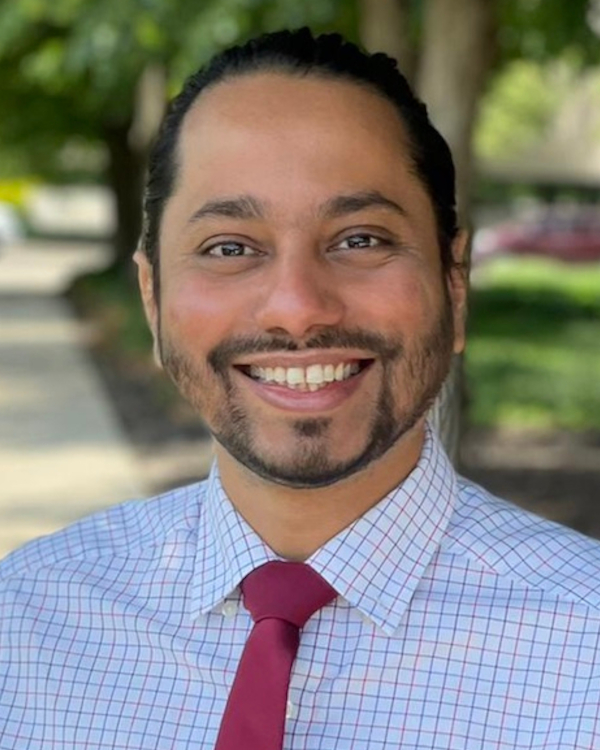
Amol P. Yadav, Ph.D.
Indiana University School of Medicine and University of North Carolina - Chapel Hill
Project Title: Sensory Augmentation, Restoration, and Modulation Using a Spinal Neuroprosthesis
Grant ID: DP2-NS136872
Dr. Amol Yadav is an Assistant Professor in the Department of Neurological Surgery at the Indiana University School of Medicine. He earned his Ph.D. in Biomedical Engineering from Duke University in the laboratory of Dr. Miguel Nicolelis, where he developed tools to advance brain-machine interfaces using spinal cord neuromodulation, and pioneered technologies such as brain-spine interfaces, multi-animal brainnets, and closed-loop stimulation. As a postdoctoral scholar in Duke Neurosurgery, he was awarded the Germinator Research Award for his translational neuromodulation work in non-human primates and human subjects. Along with the NIH Director’s New Innovator award, he is also the recipient of the 2023 K12 Early Career Investigator award from NIH-NCATS. He leads the Brain-Spine-Machine Interfaces lab which aims to develop neural interfaces for restoration and augmentation of human sensorimotor function using pre-clinical animal models and pilot studies in humans.
Xinzhu Yu, Ph.D.
University of Illinois at Urbana-Champaign
Project Title: Functional, Structural and Molecular Decoding of Astrocyte-Neuron Interaction
Grant ID: DP2-NS136871
Xinzhu Yu is an Assistant Professor in the Department of Molecular and Integrative Physiology at University of Illinois at Urbana-Champaign (UIUC). Xinzhu grew up in Beijing, China, where she received her B.S and M.S. degrees in biology from Tsinghua University. In 2007, she moved to the U.S. and earned her Ph.D. in Neuroscience under the mentorship of Dr. Yi Zuo from University of California Santa Cruz (UCSC), where she investigated mechanisms mediating synaptic plasticity in the living brain. She then performed postdoctoral research at University of California Los Angeles (UCLA) under the mentorship of Dr. Baljit Khakh to study astrocyte physiology and pathophysiology with innovative tools. In 2020, Xinzhu started her lab at UIUC to explore the intricate relationships between astrocytes and neurons and to understand how these interactions modulate neural circuit functions, influence behavior, and impact psychiatric and neurological conditions.
Xin Zhou, Ph.D.
Dana-Farber Cancer Institute & Harvard Medical School
Project Title: Engineering Programmable Enzymes for Proteome Editing
Grant ID: DP2-GM154013
Funded by the National Institute of General Medical Sciences
Xin Zhou is an Assistant Professor in the Cancer Biology Department at the Dana-Faber Cancer Institute and the Biological Chemistry & Molecular Pharmacology Department at Harvard Medical School. She completed her Ph.D. in Bioengineering at Stanford University with Dr. Michael Lin and trained as a Damon Runyon Postdoctoral Fellow at the University of California, San Francisco, with Dr. James Wells. The Zhou lab focuses on engineering novel biologics for sensing and modulating cancer and immune receptor functions. Her research spans three main sub-areas: (1) designing protein degraders to target membrane and extracellular proteins, (2) engineering programmable signaling enzymes for immune modulation, and (3) developing biosensing technologies for gaining a comprehensive understanding of disease microenvironments.
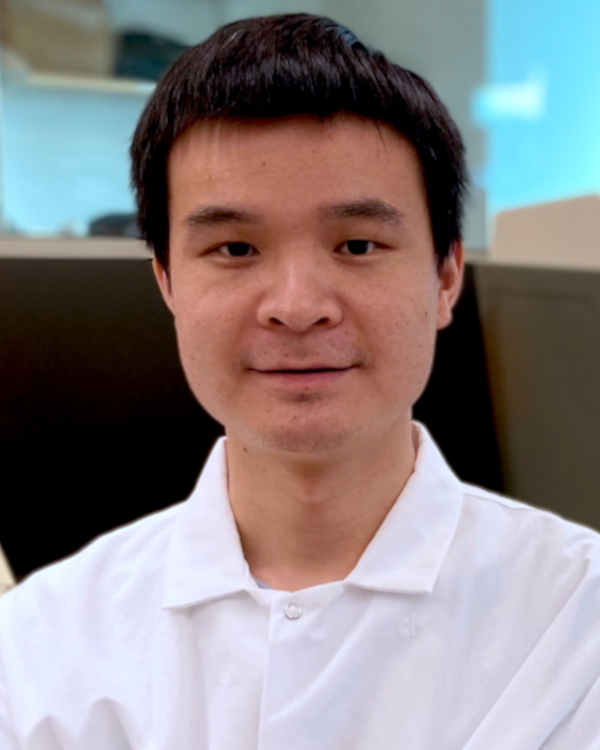
Chenxu Zhu, Ph.D.
New York Genome Center and Weill Cornell Medicine
Project Title: Studying the Regulatory Dynamics with Single-Cell Multiomics
Grant ID: DP2-GM154011
Funded by the National Institute of General Medical Sciences
Chenxu Zhu is an Assistant Professor of Physiology and Biophysics and of Computational Cancer Systems Biology and Genomics in Computational Biomedicine in the Institute for Computational Biomedicine at Weill Cornell Medicine, and a Core Faculty Member of the New York Genome Center. Dr. Zhu received his B.S. in Chemistry (2011) from Wuhan University and Ph.D. in Biochemistry and Molecular Biology (2017) from Dr. Chengqi Yi's lab at Peking University. He then pursued postdoctoral research with Dr. Bing Ren at Ludwig Institute for Cancer Research San Diego branch. His research focuses on developing multimodal single-cell genomics tools to study the combined effects of multiple regulatory layers in cell fate specification and maintenance during development, aging, and diseases. In addition to the NIH Director's New Innovator Award, Chenxu also receives the NIH-NHGRI K99/R00 Pathway to Independence Award.


